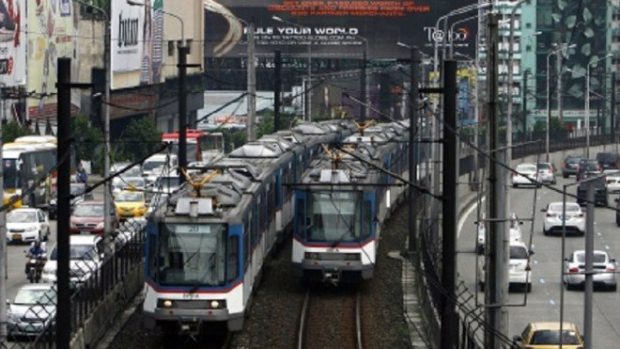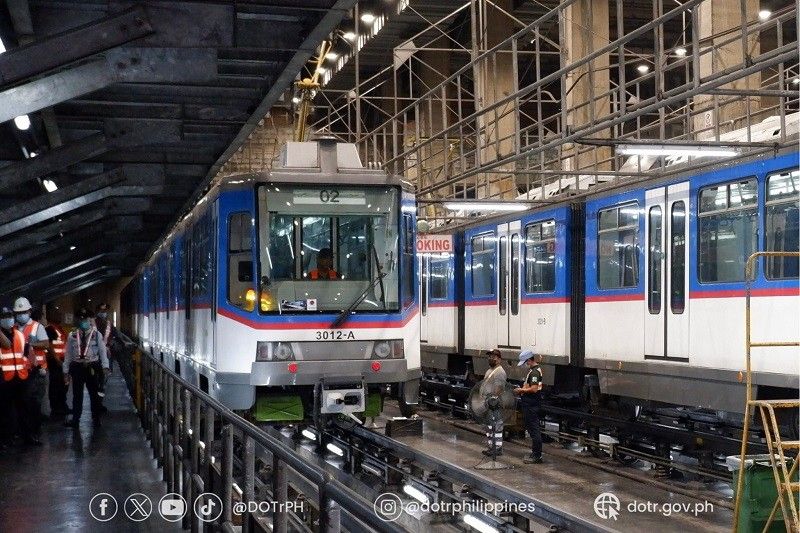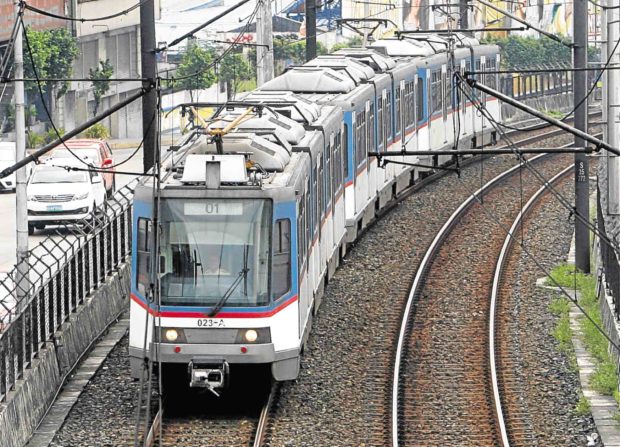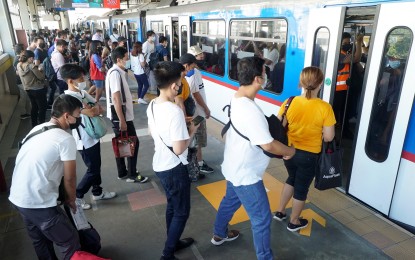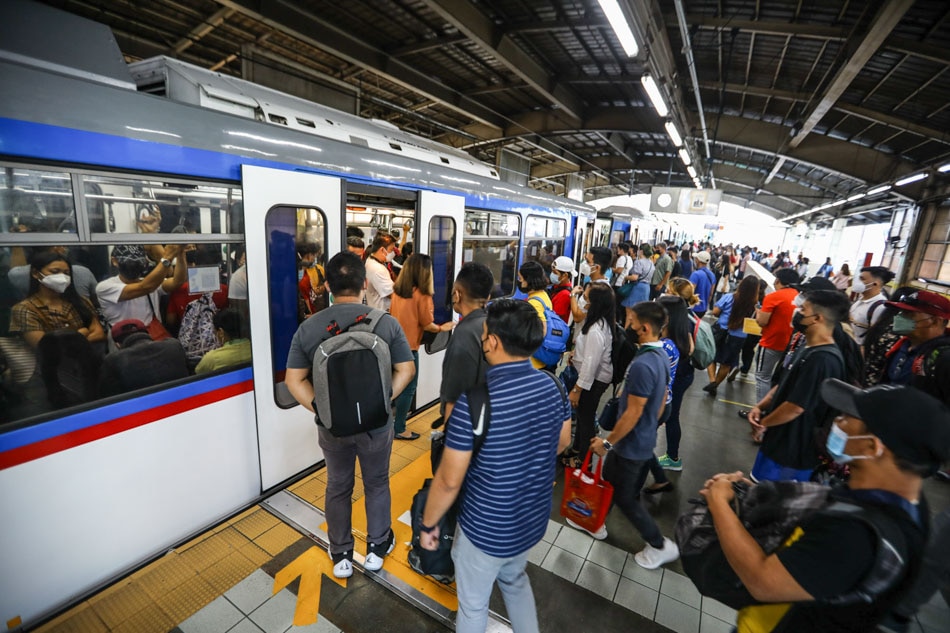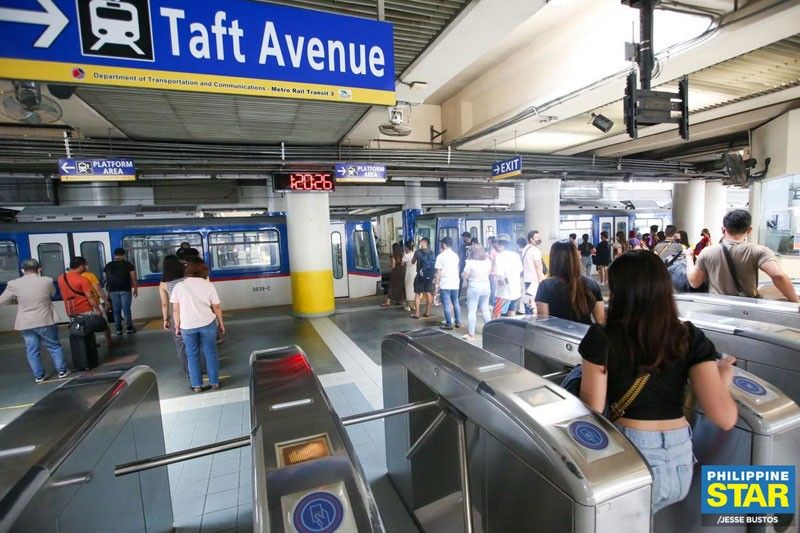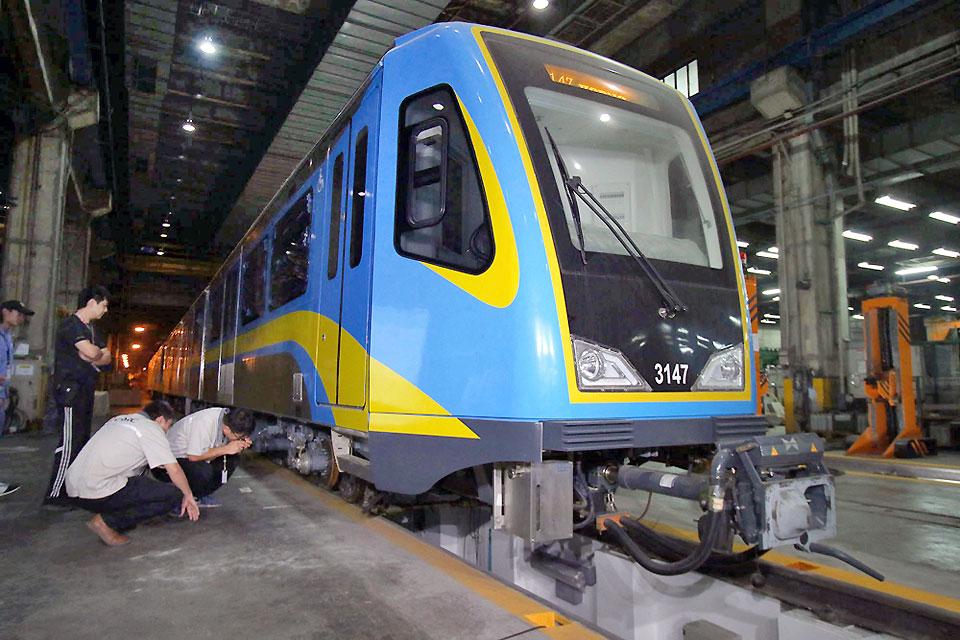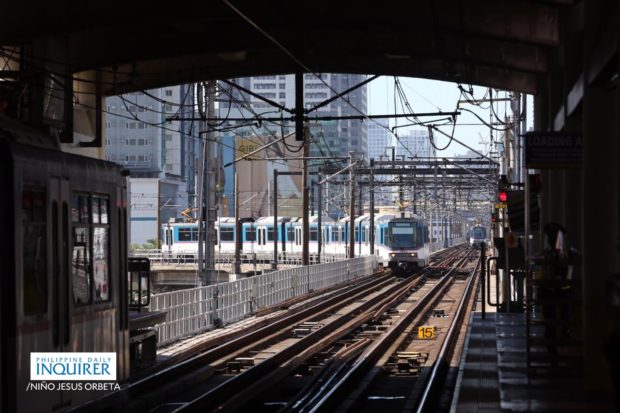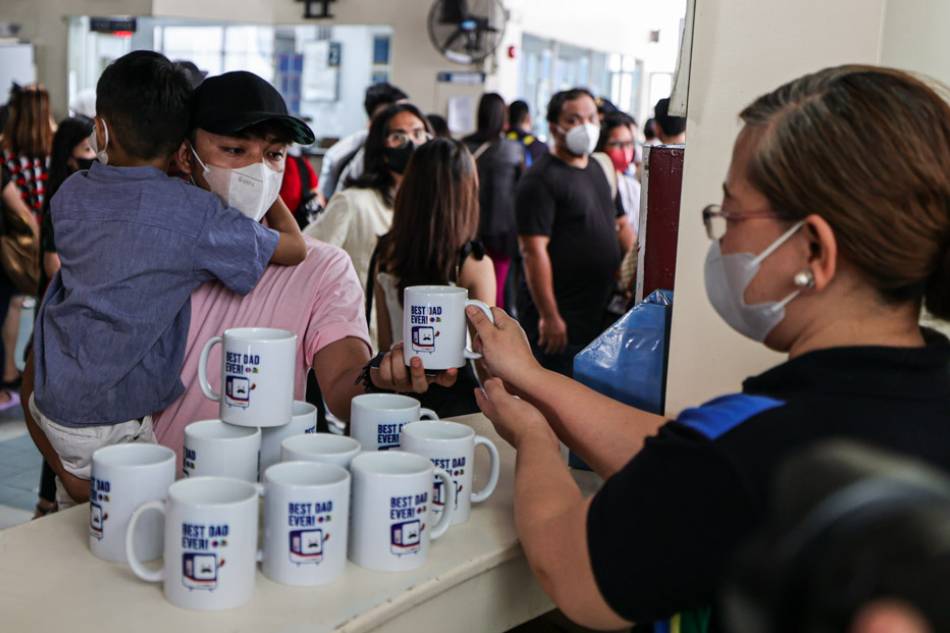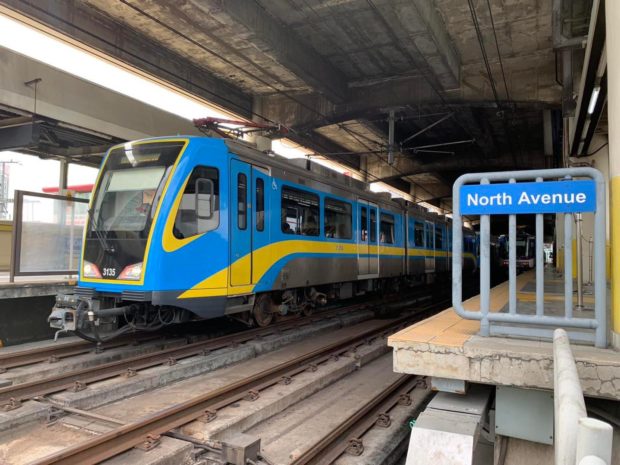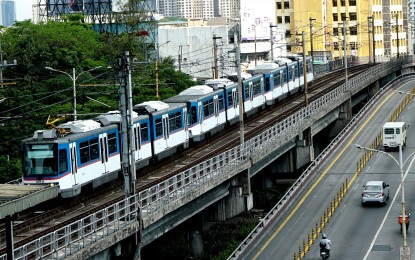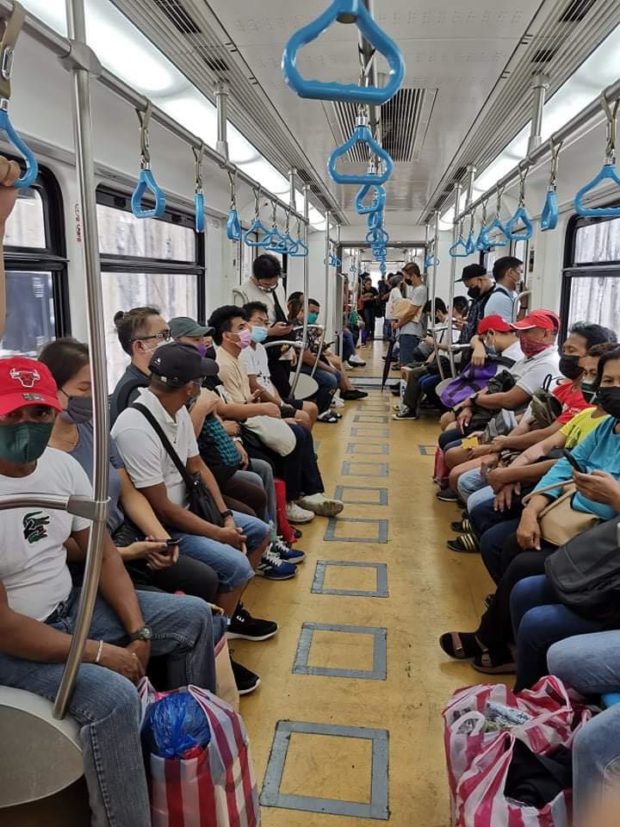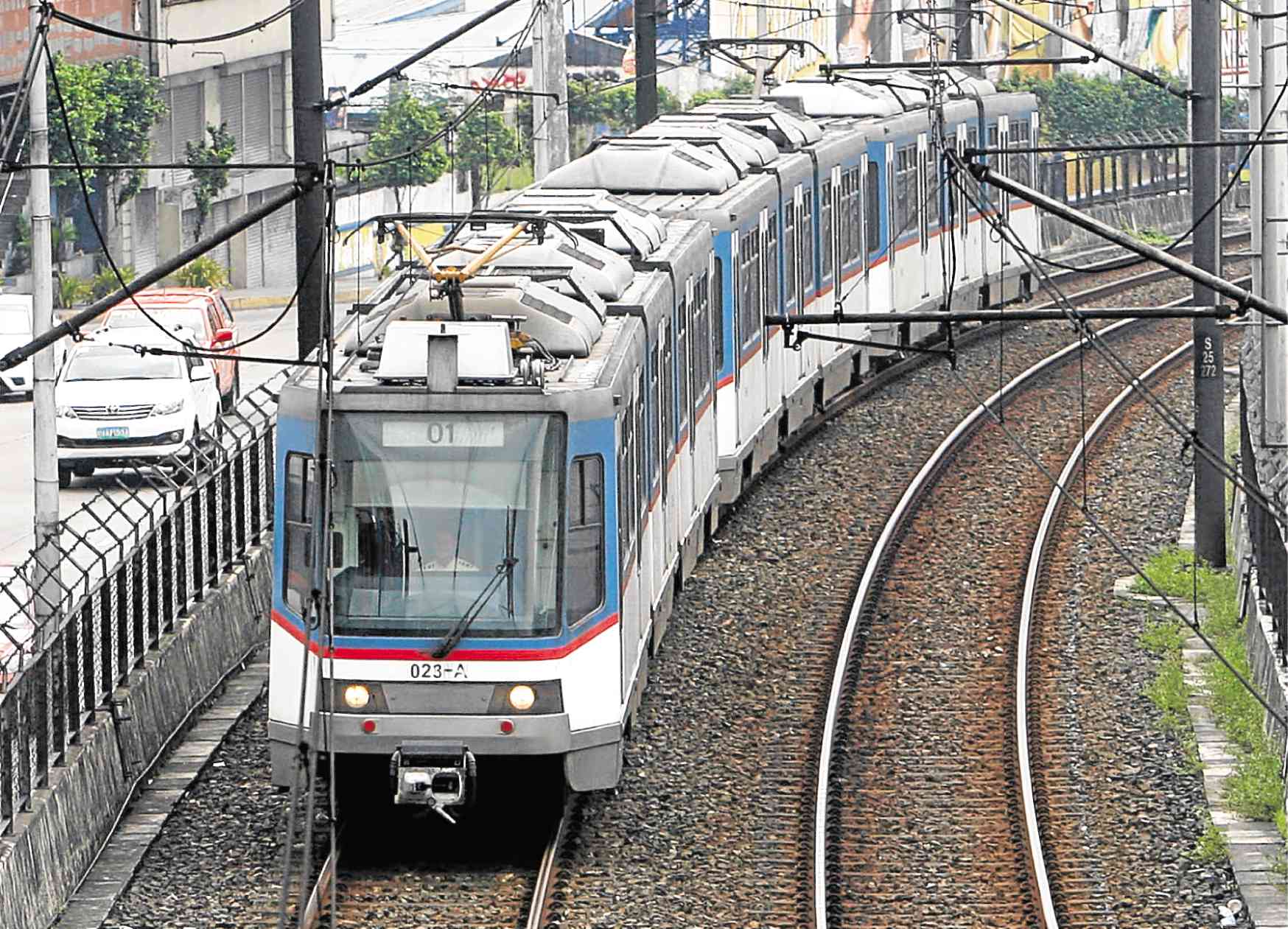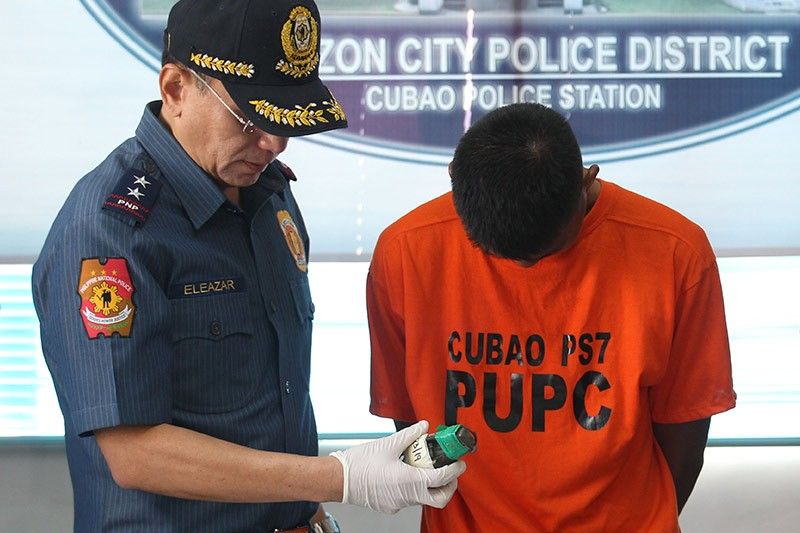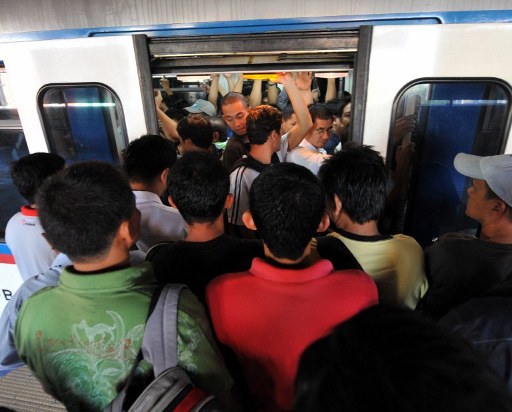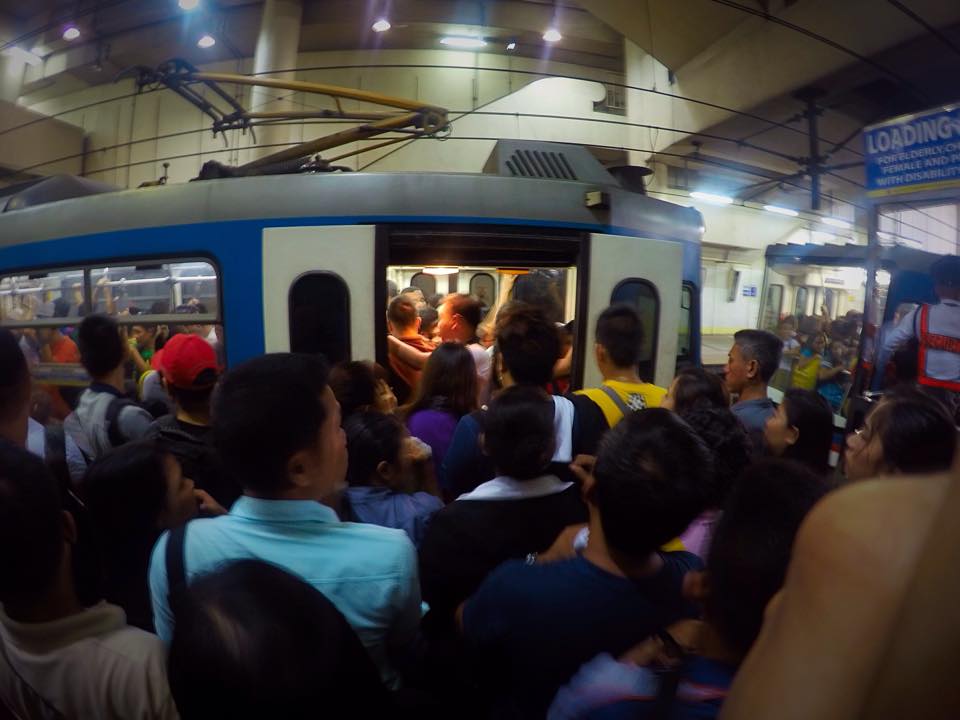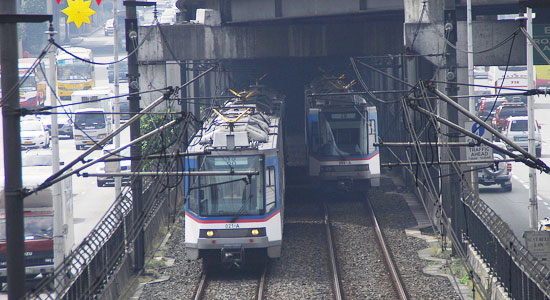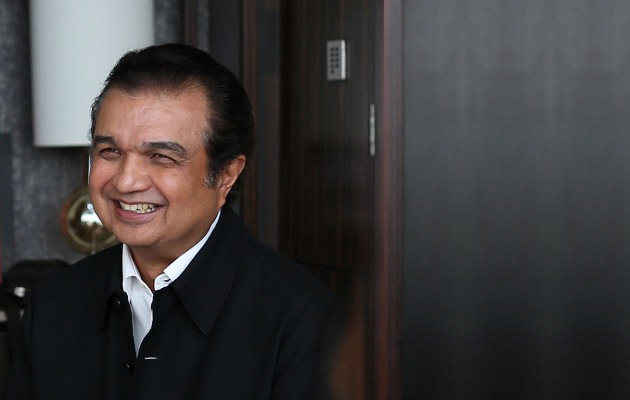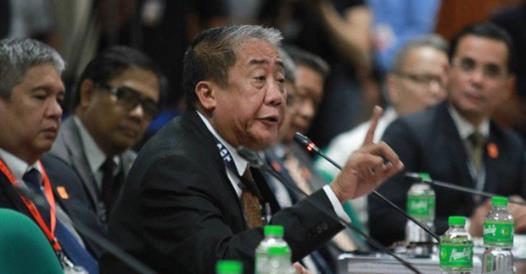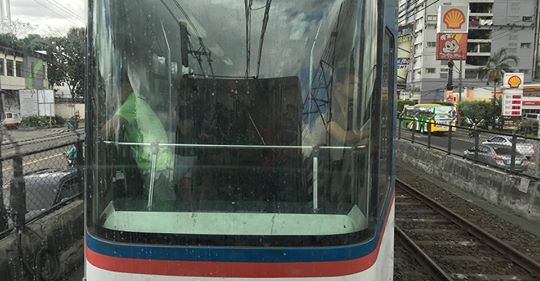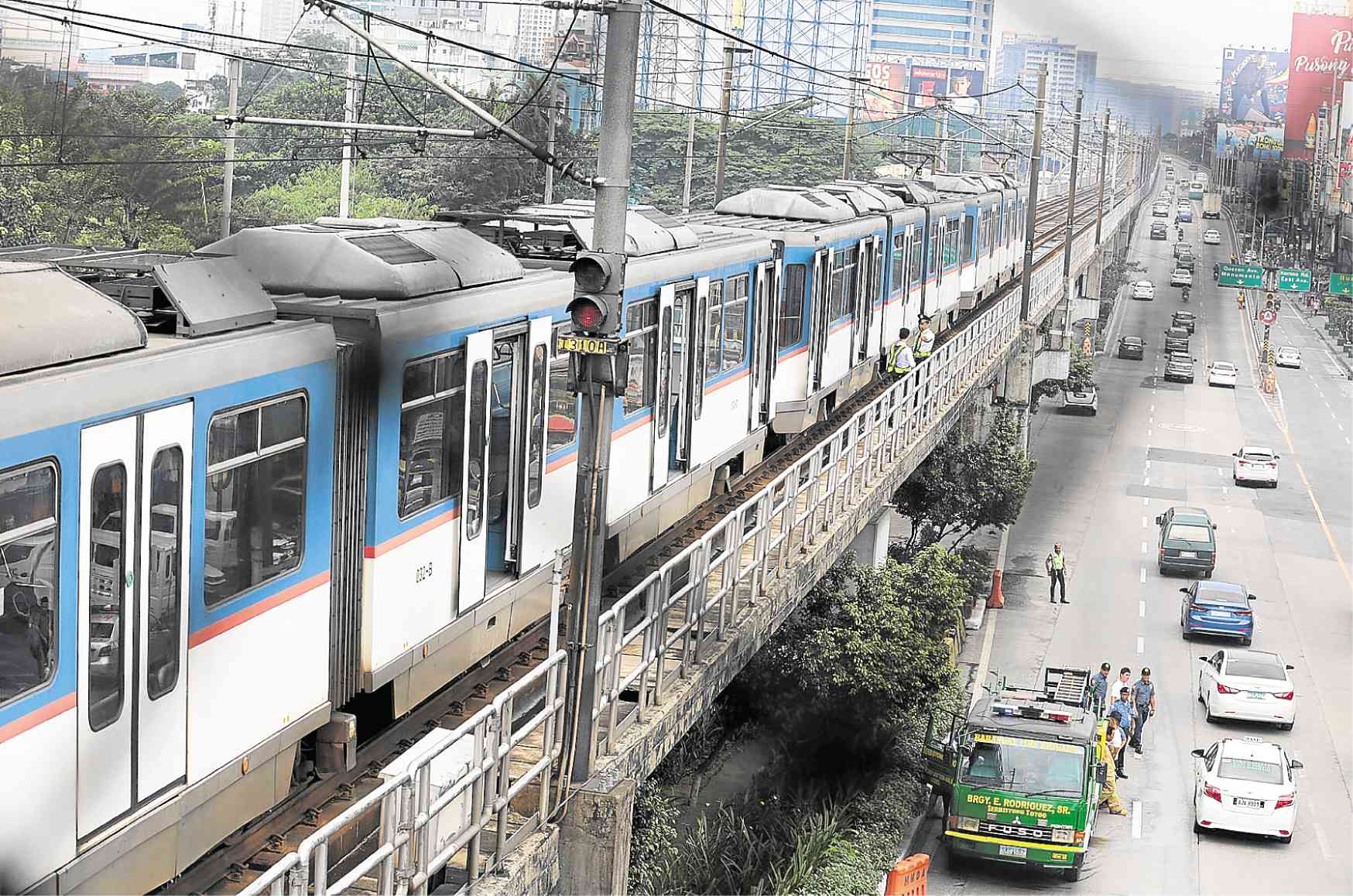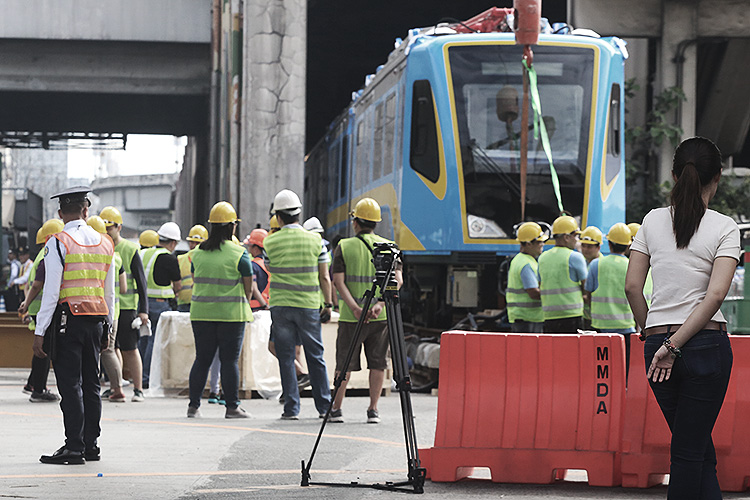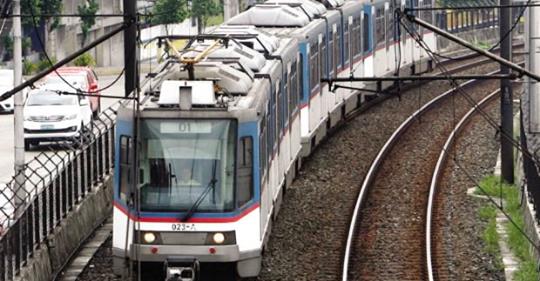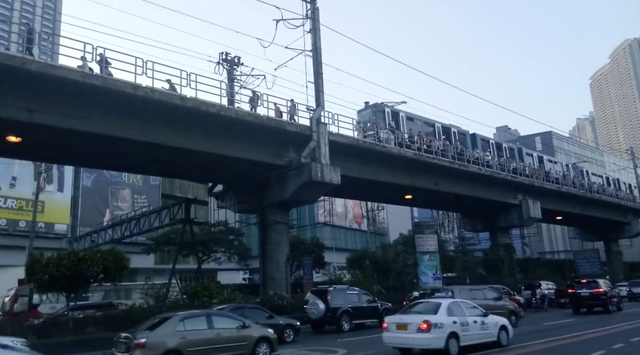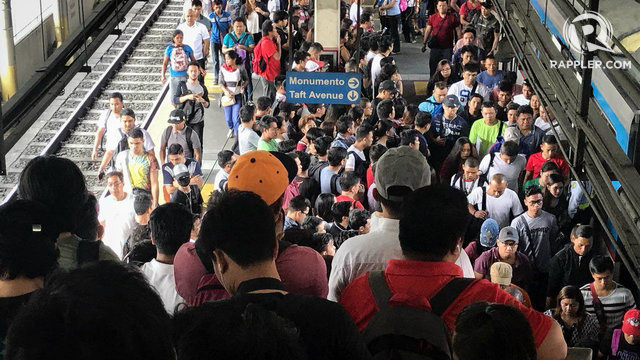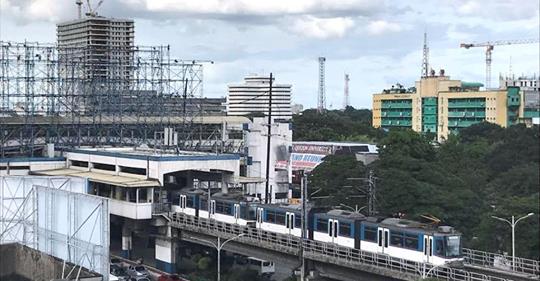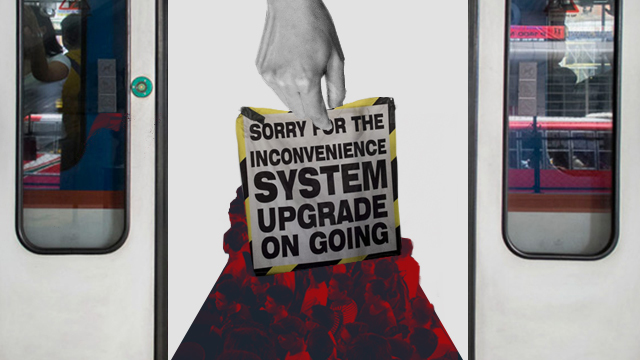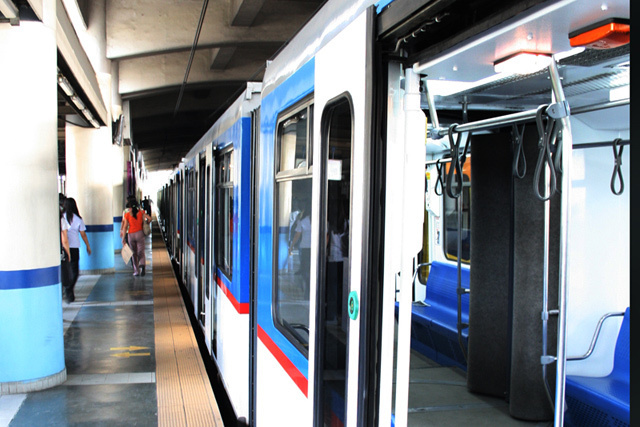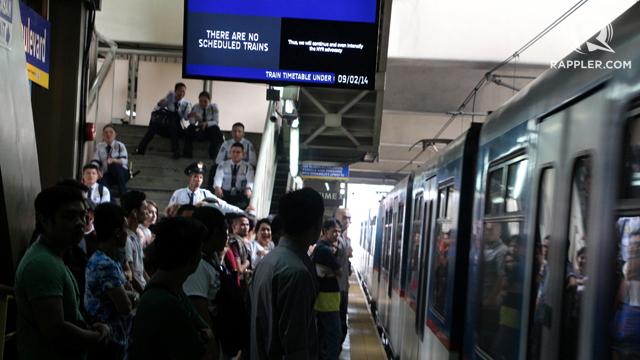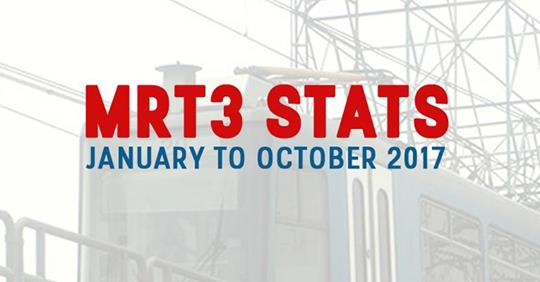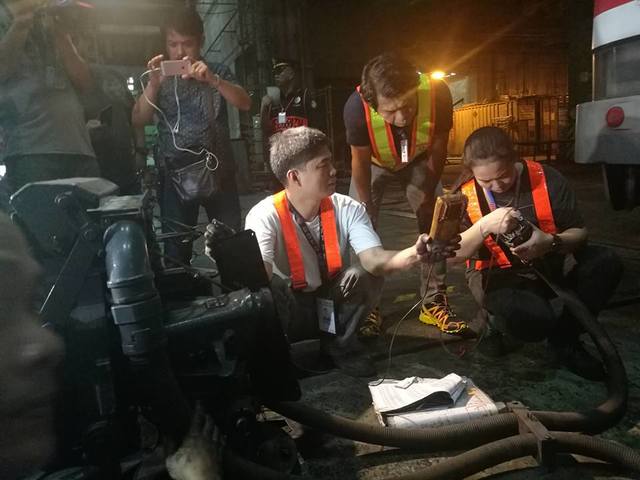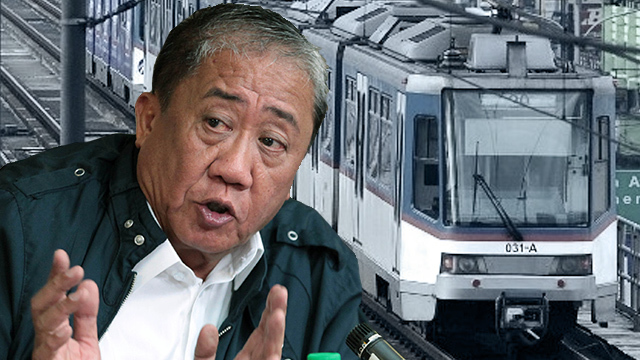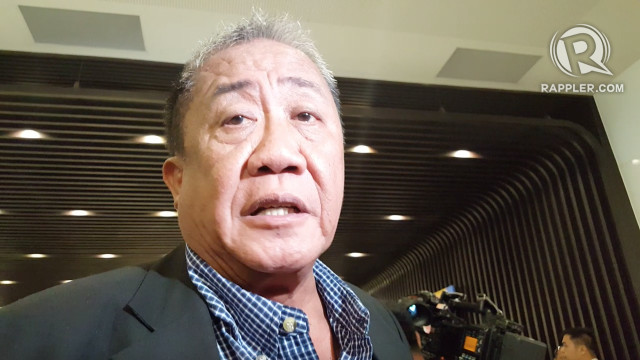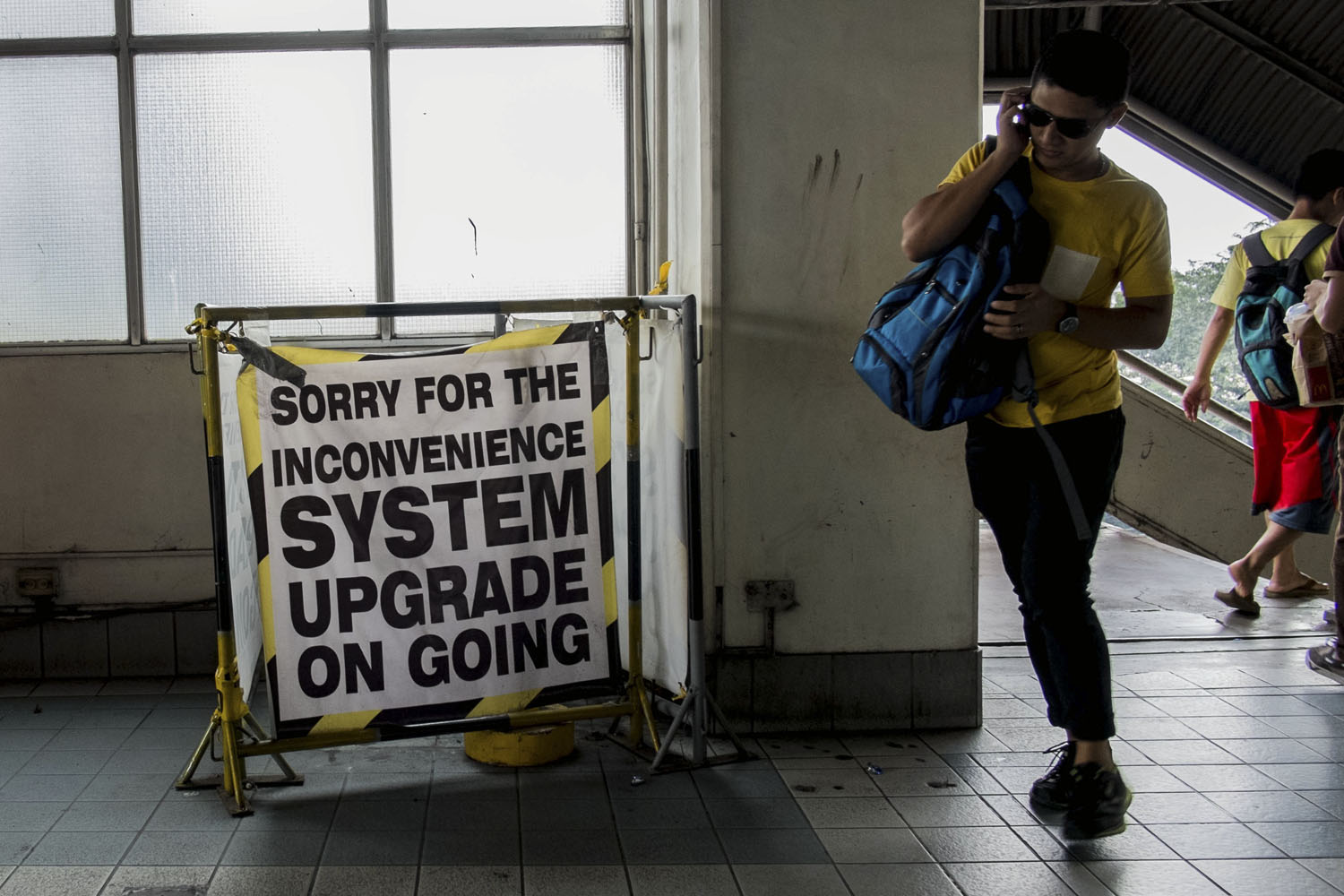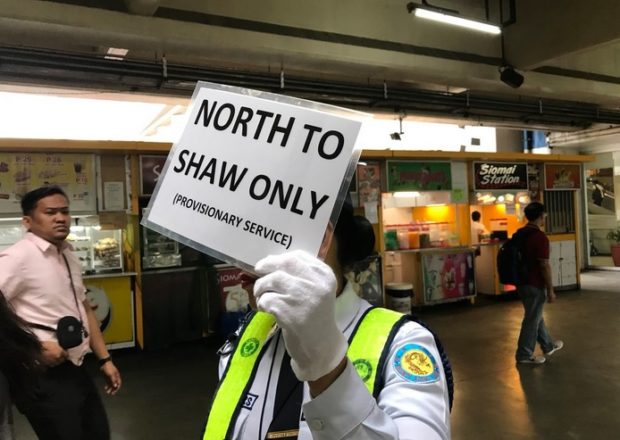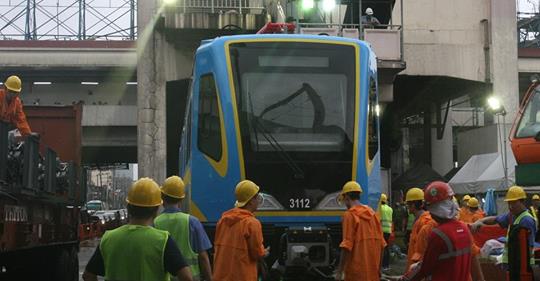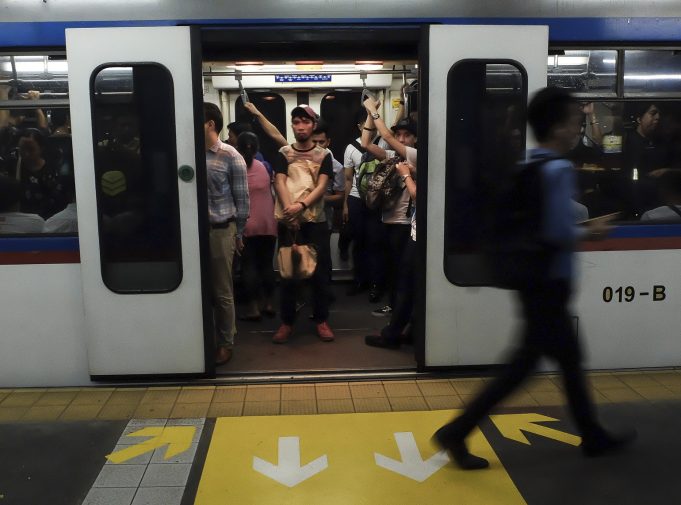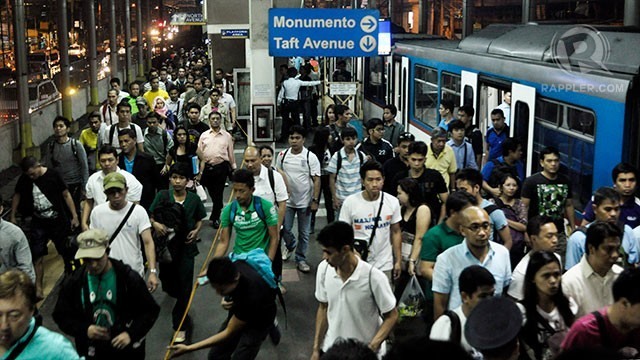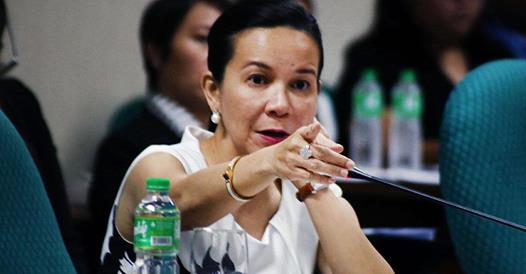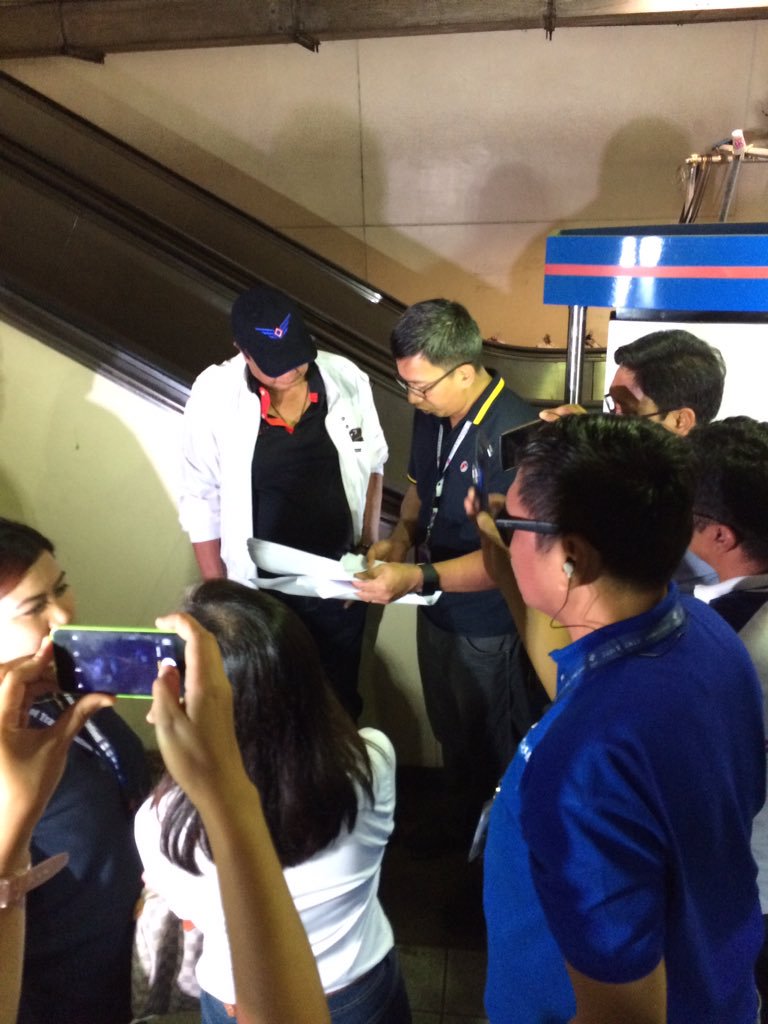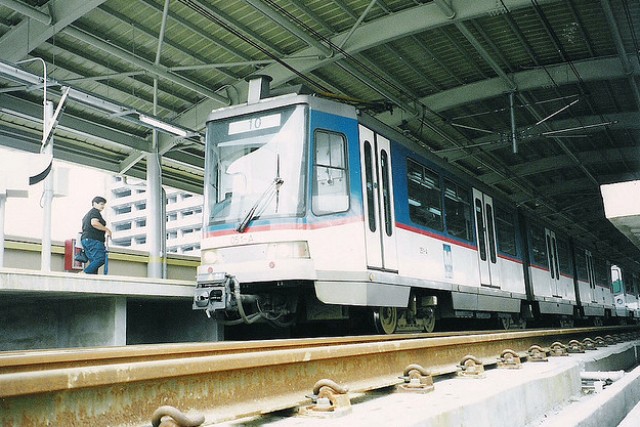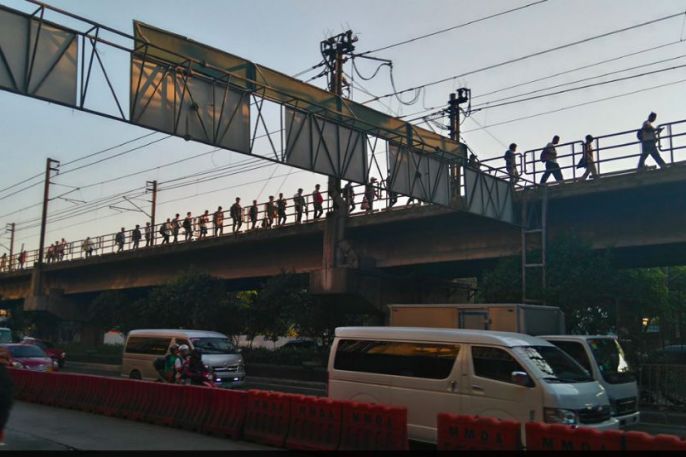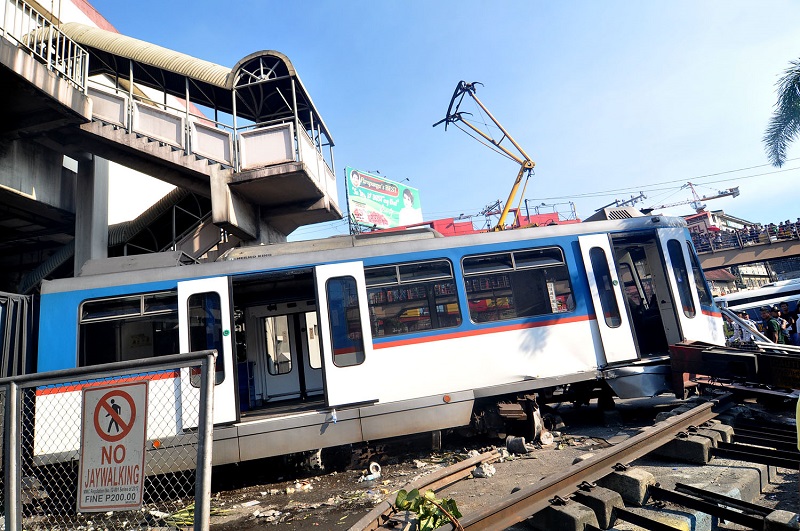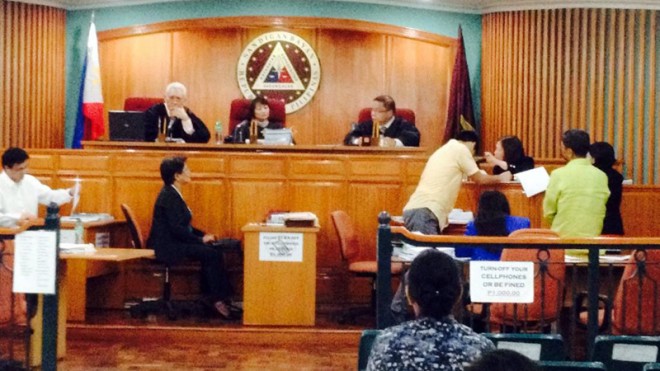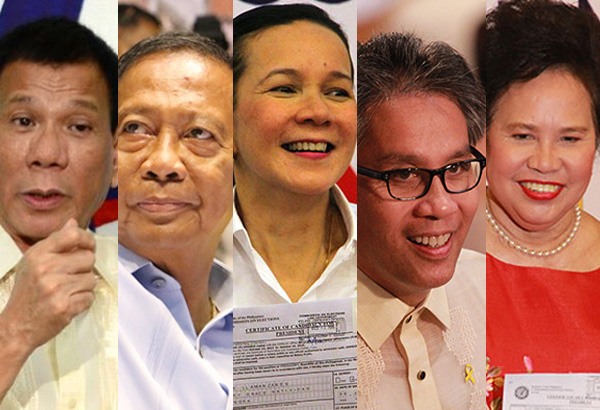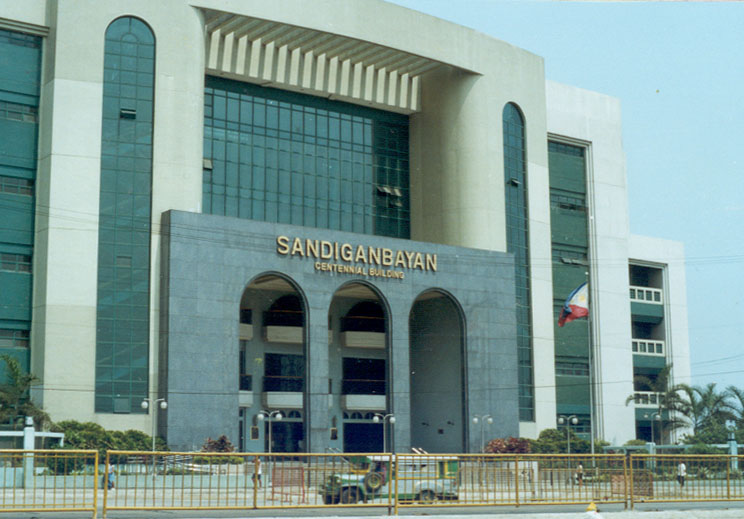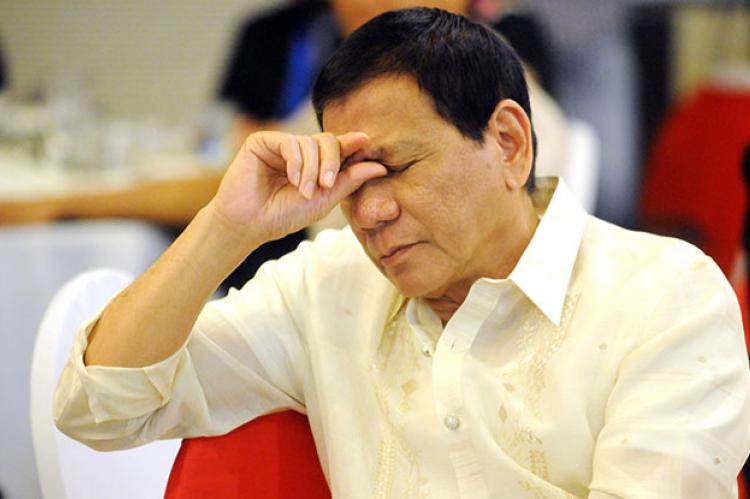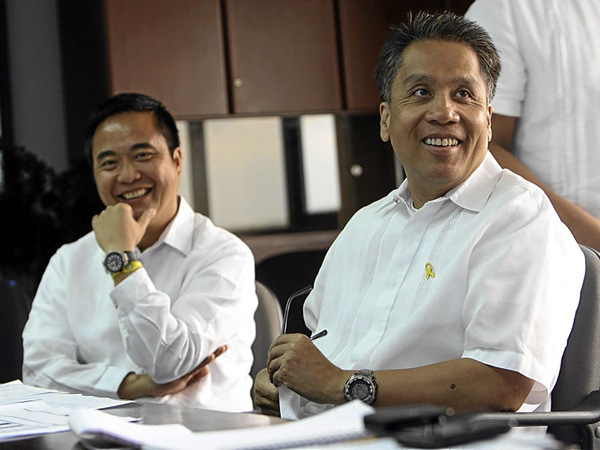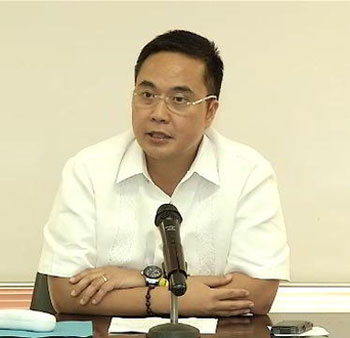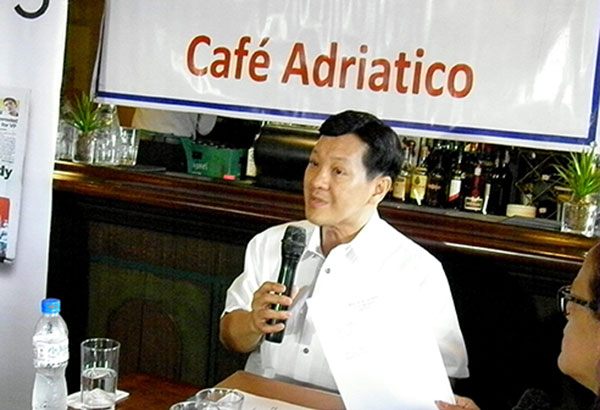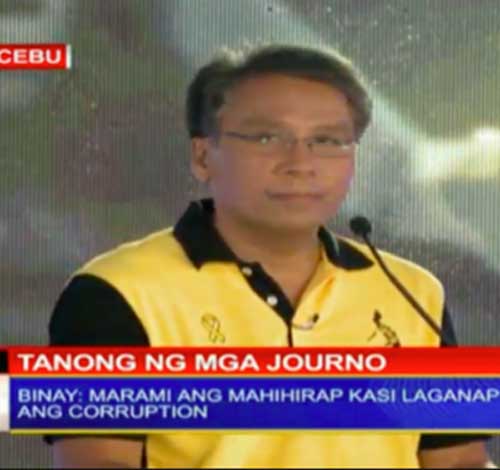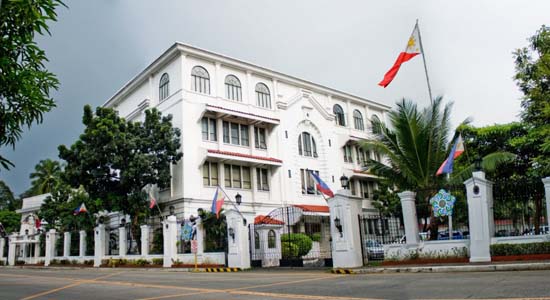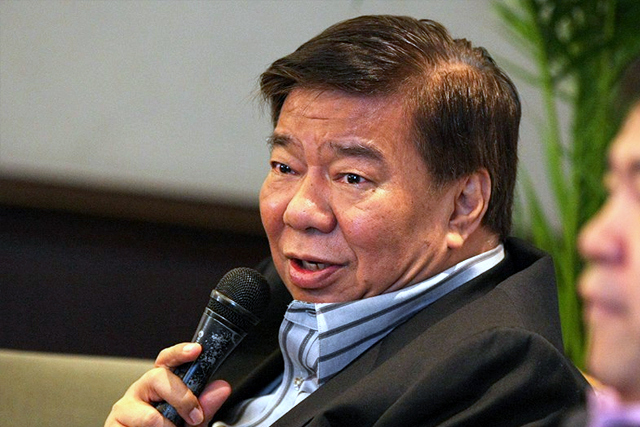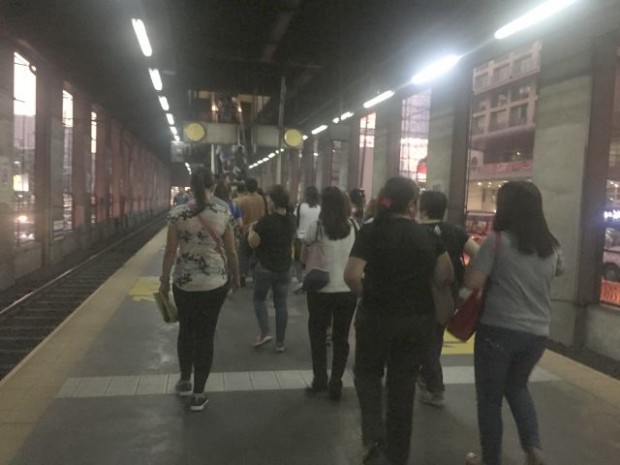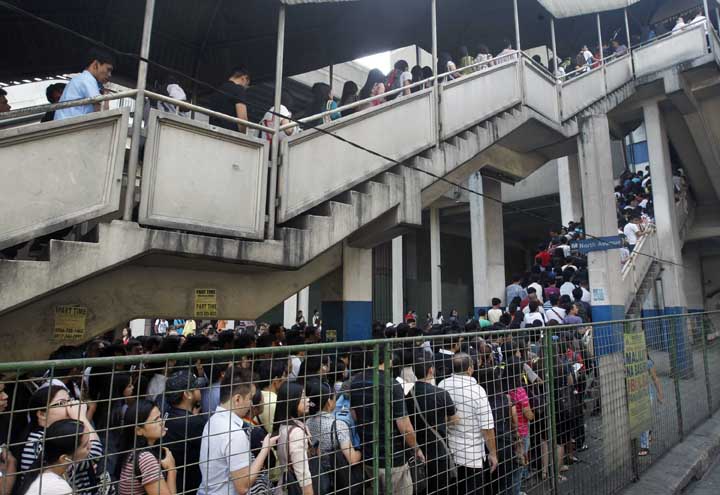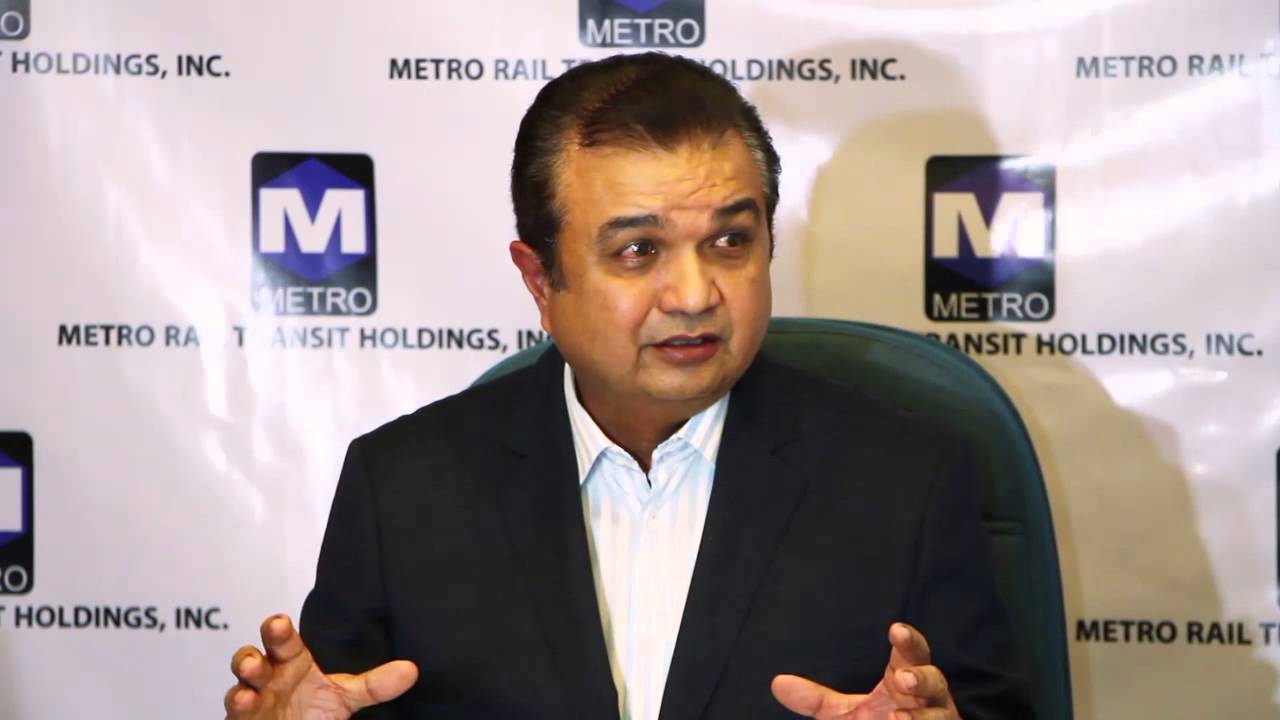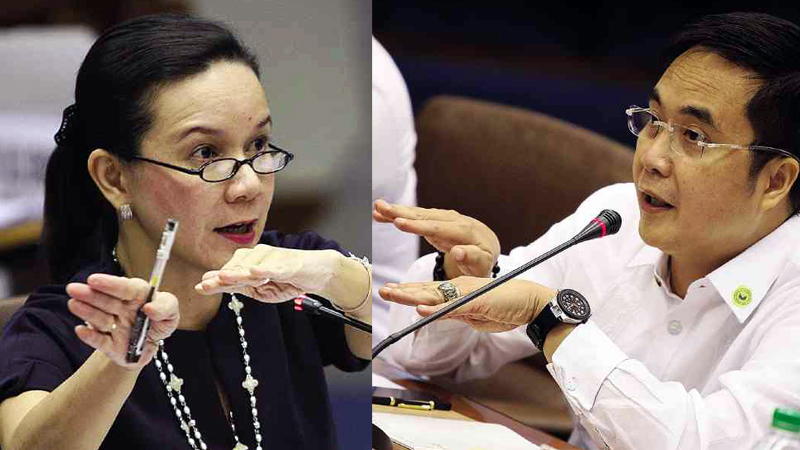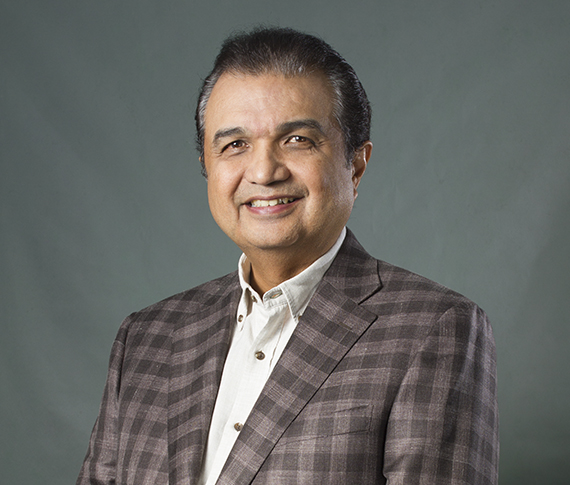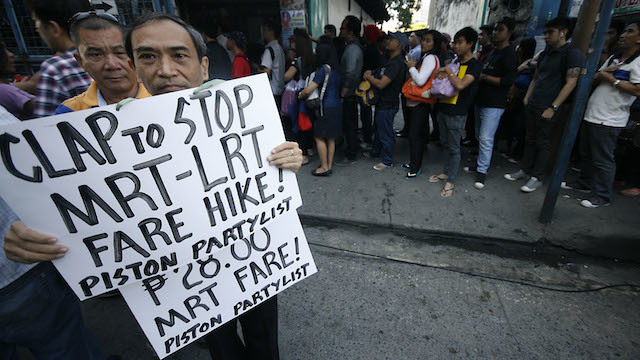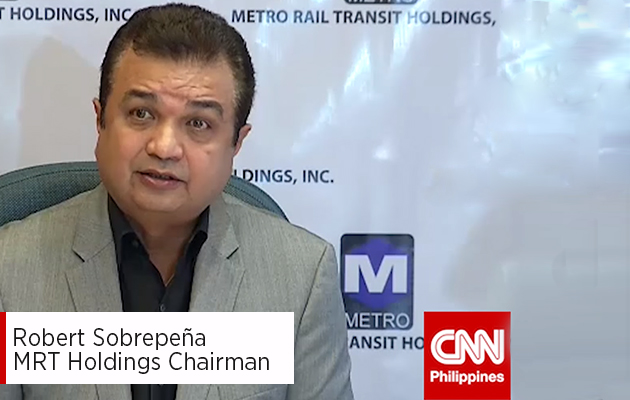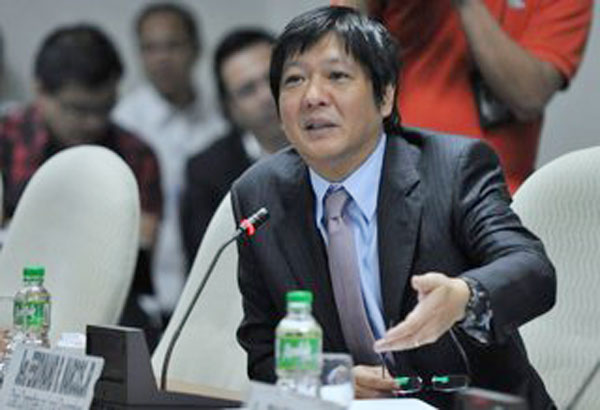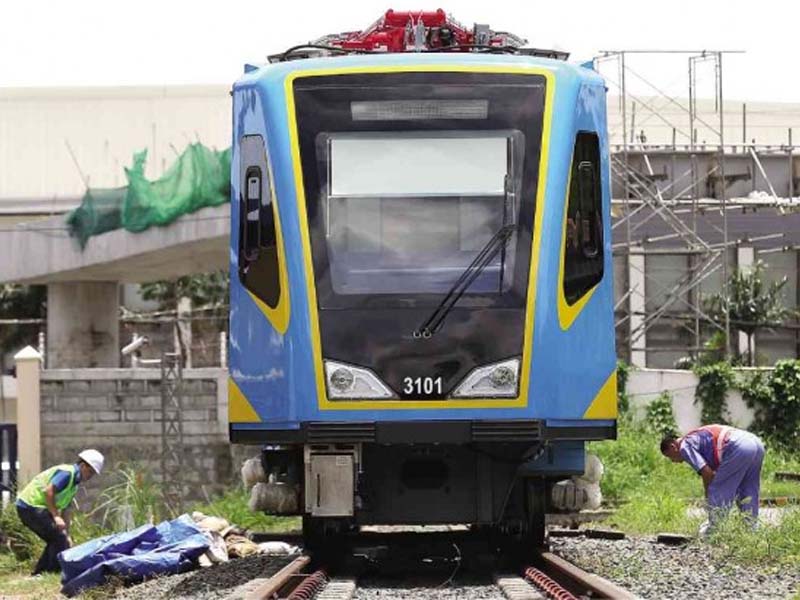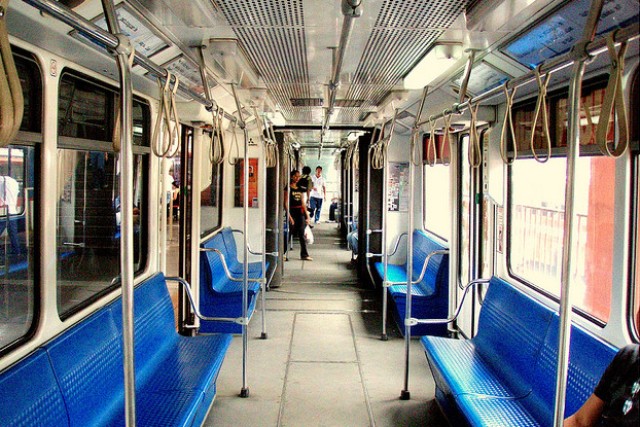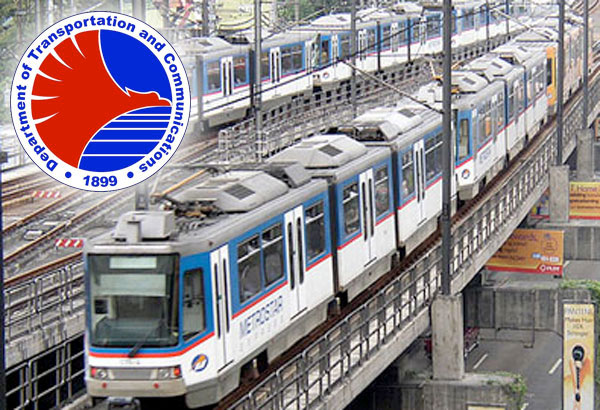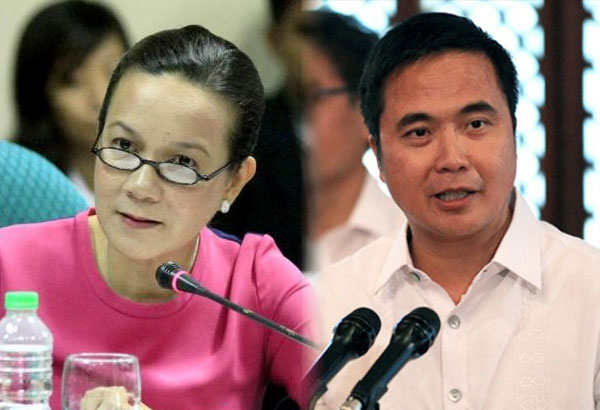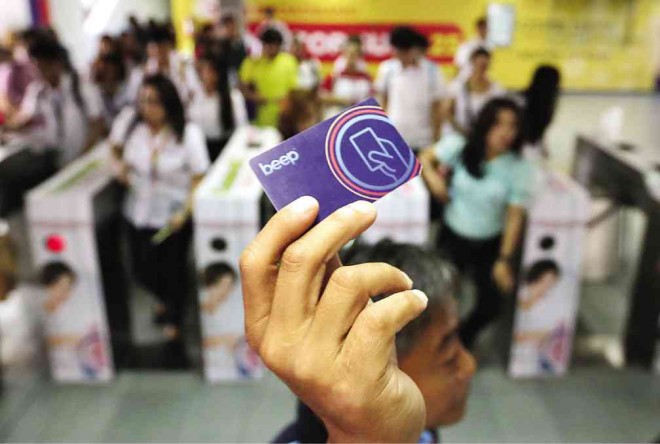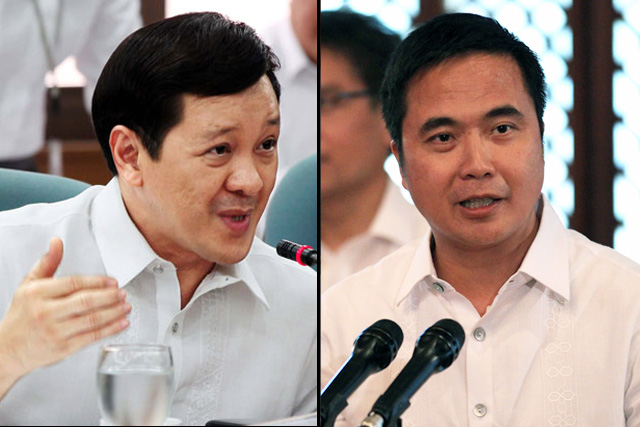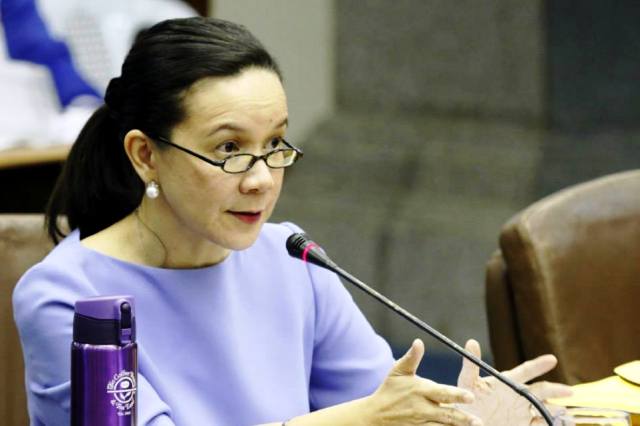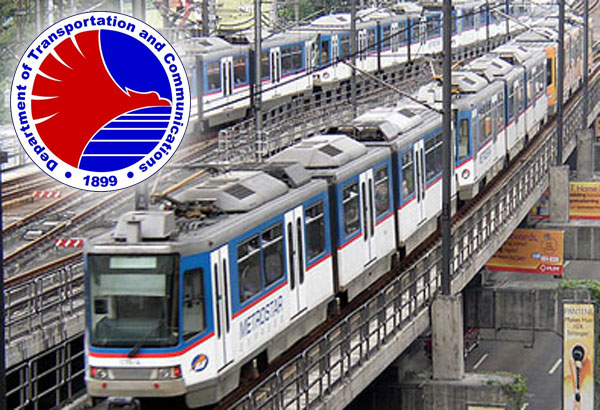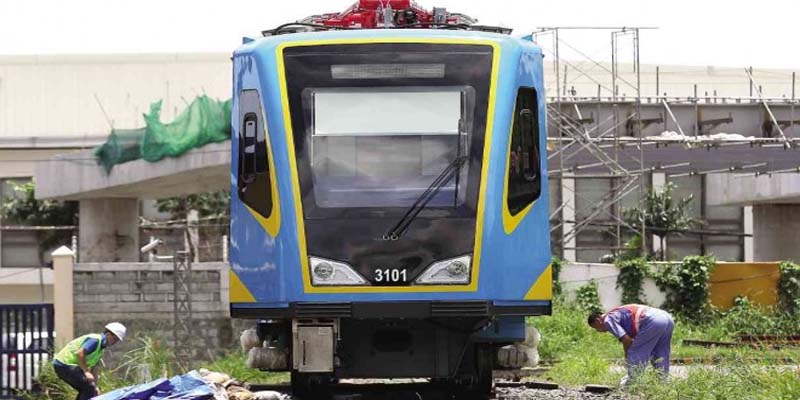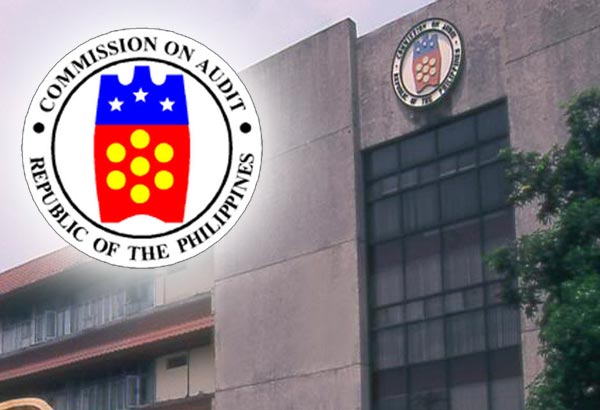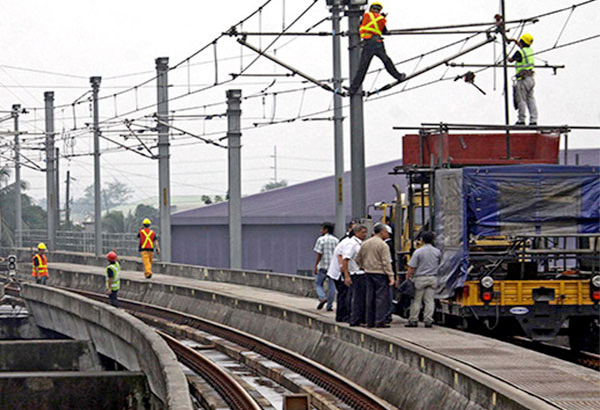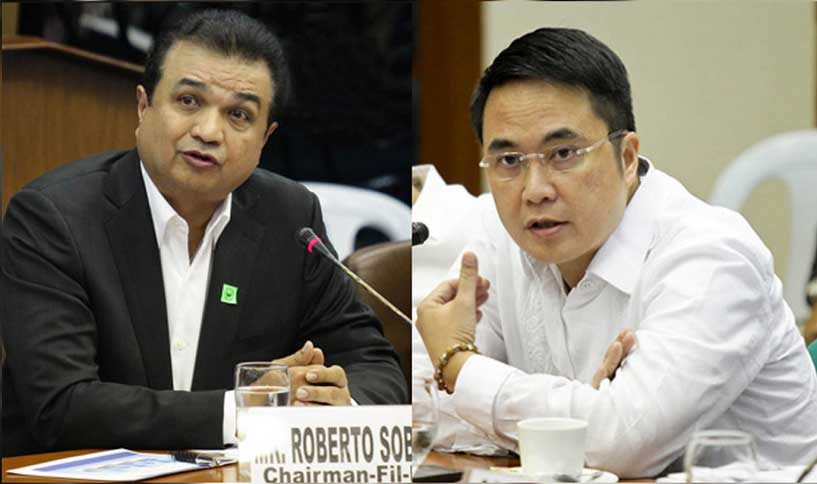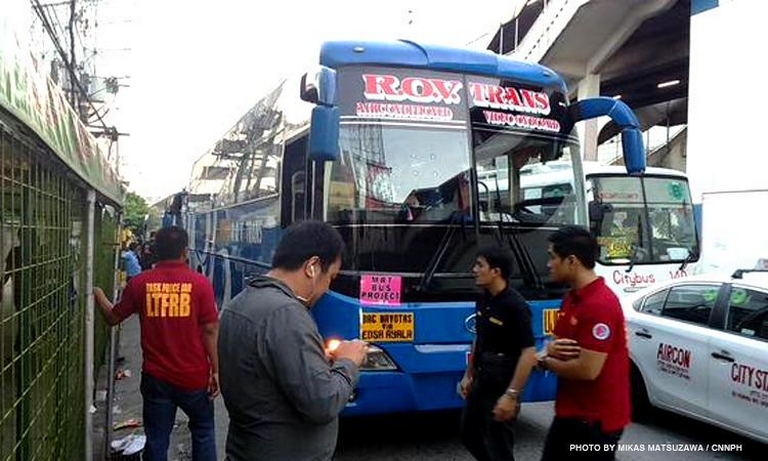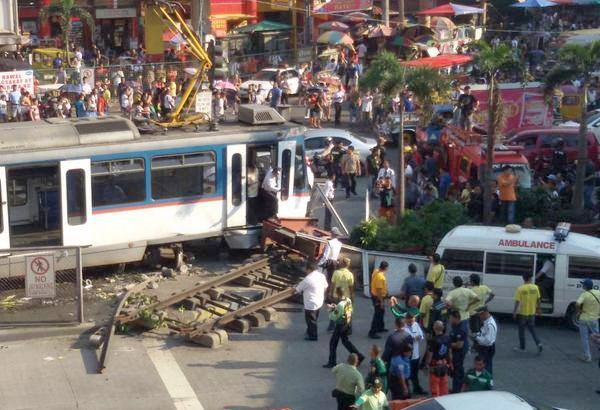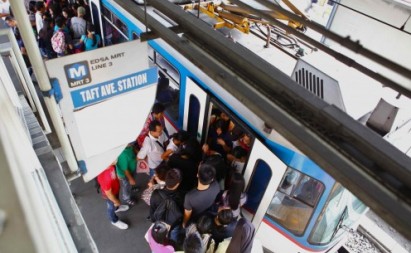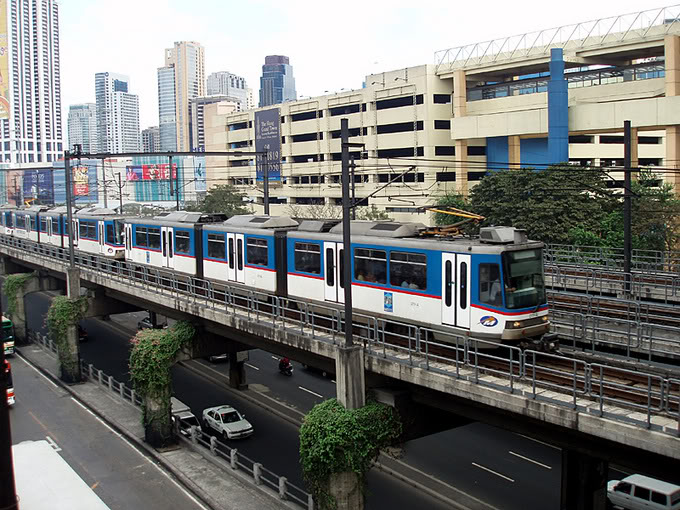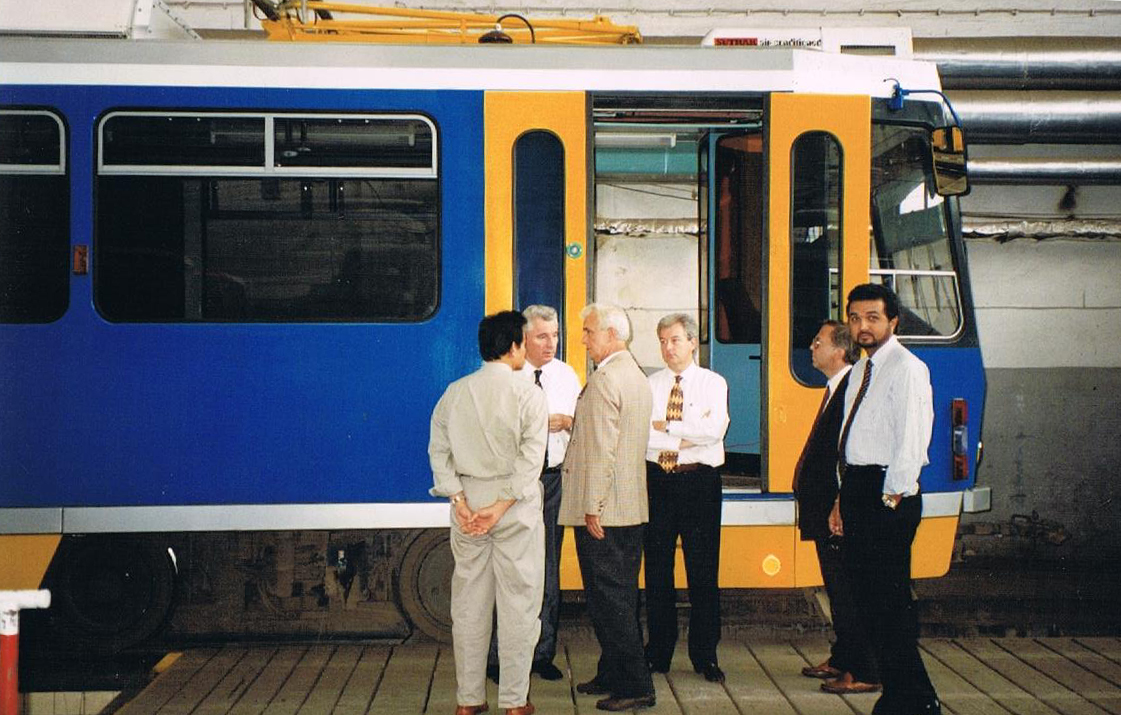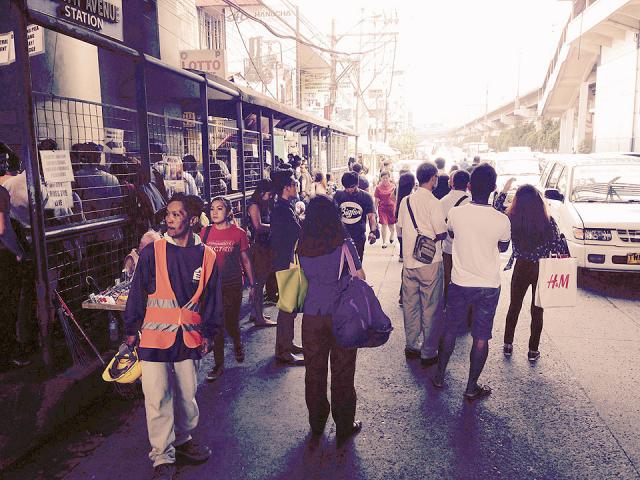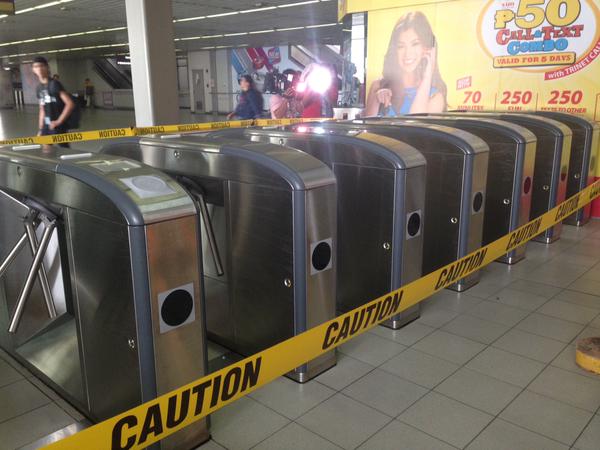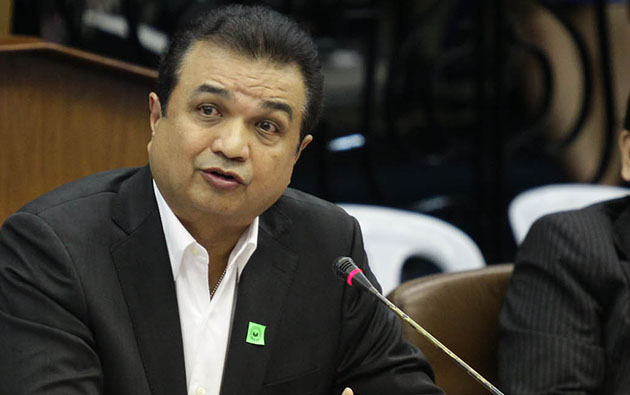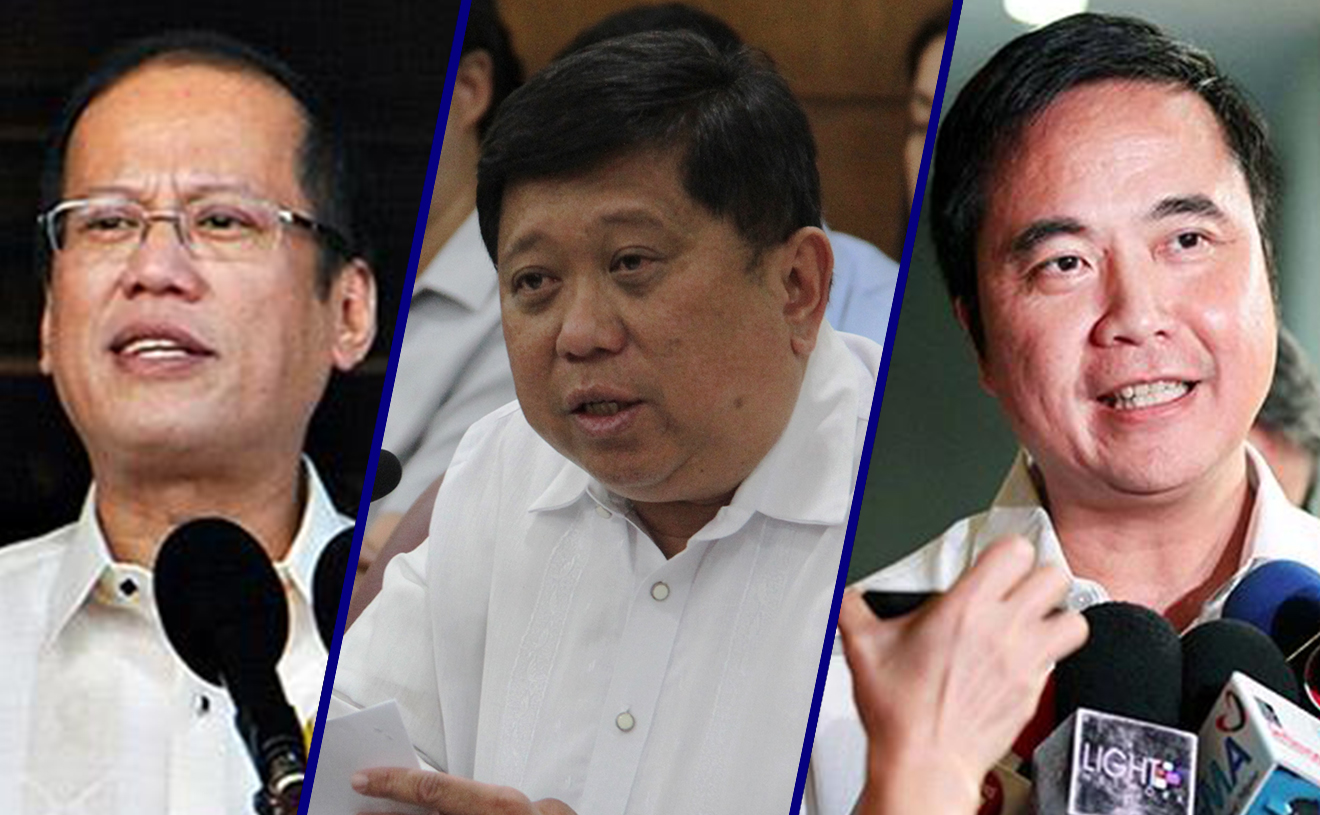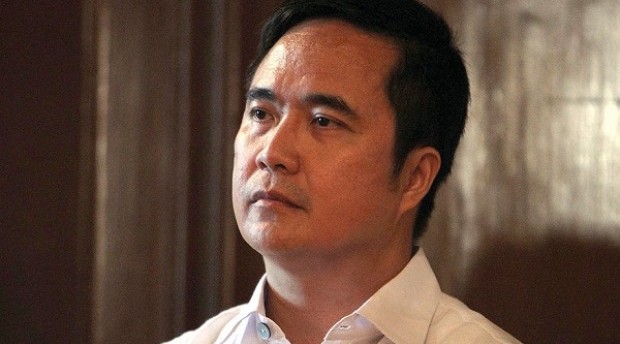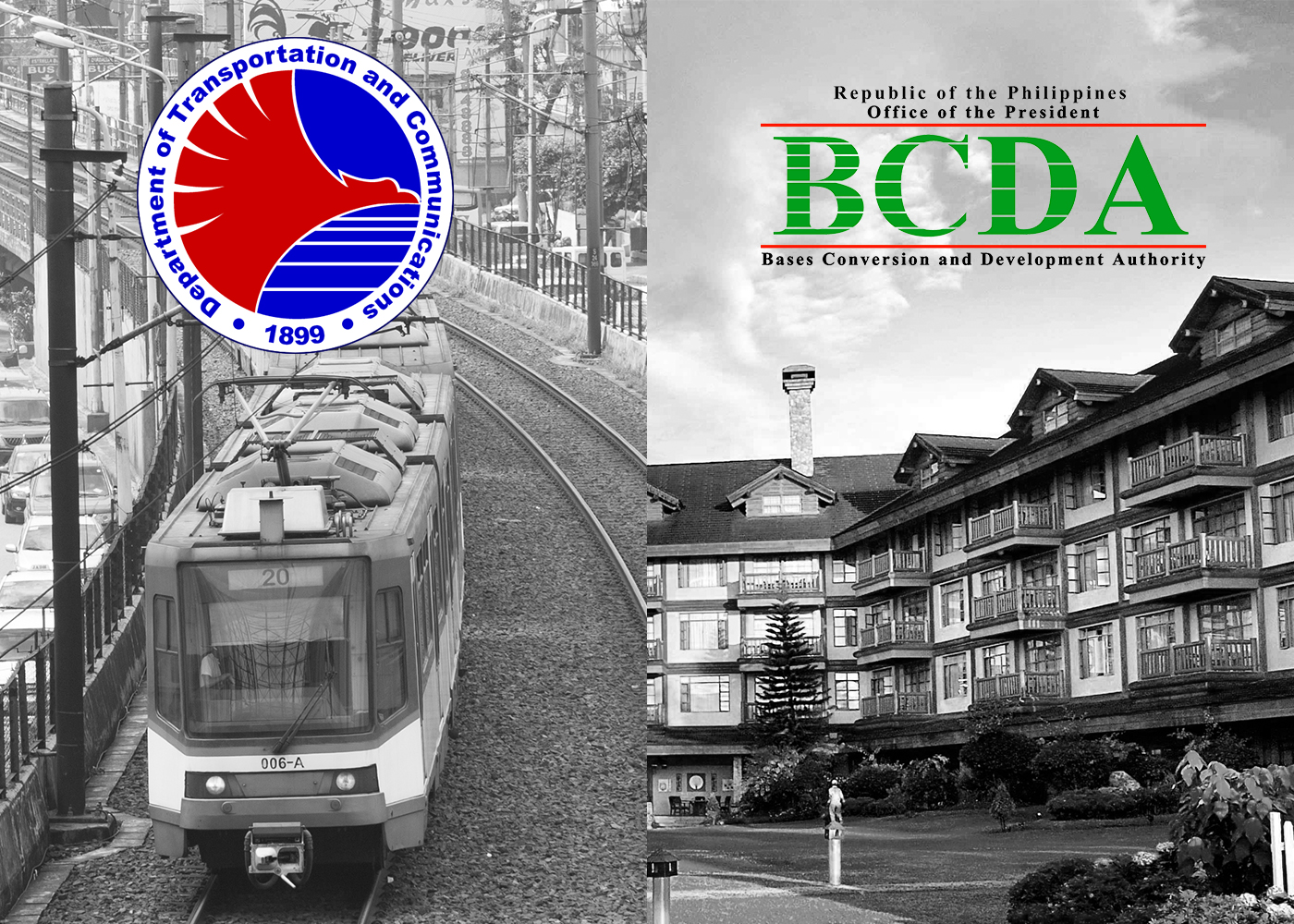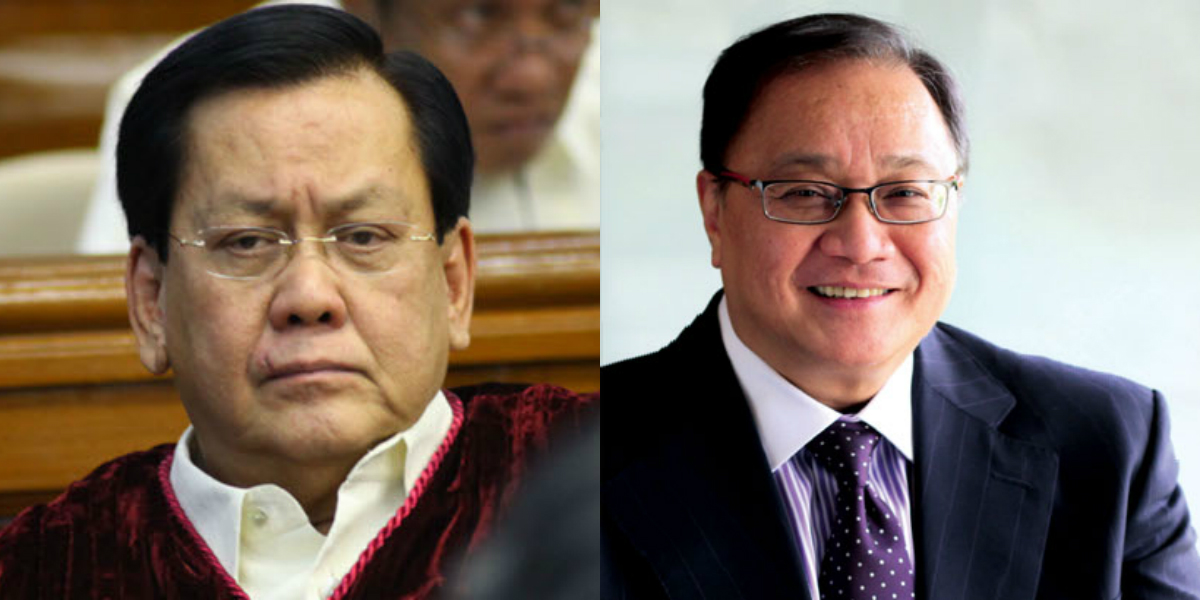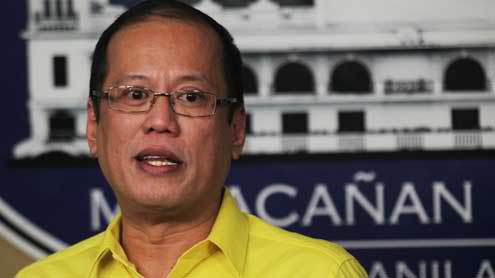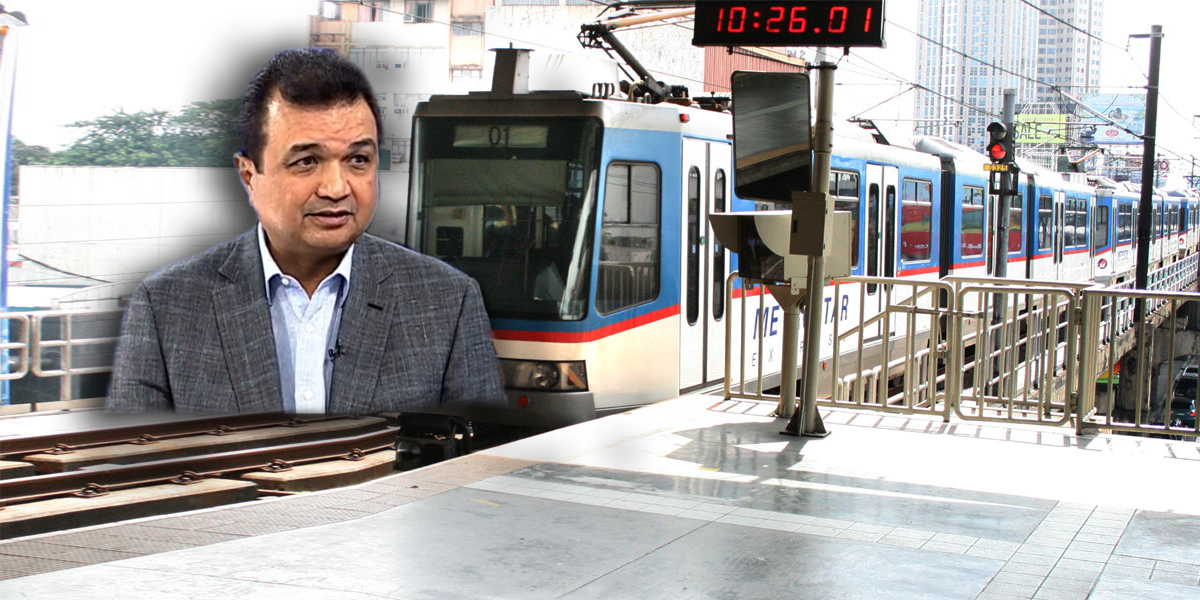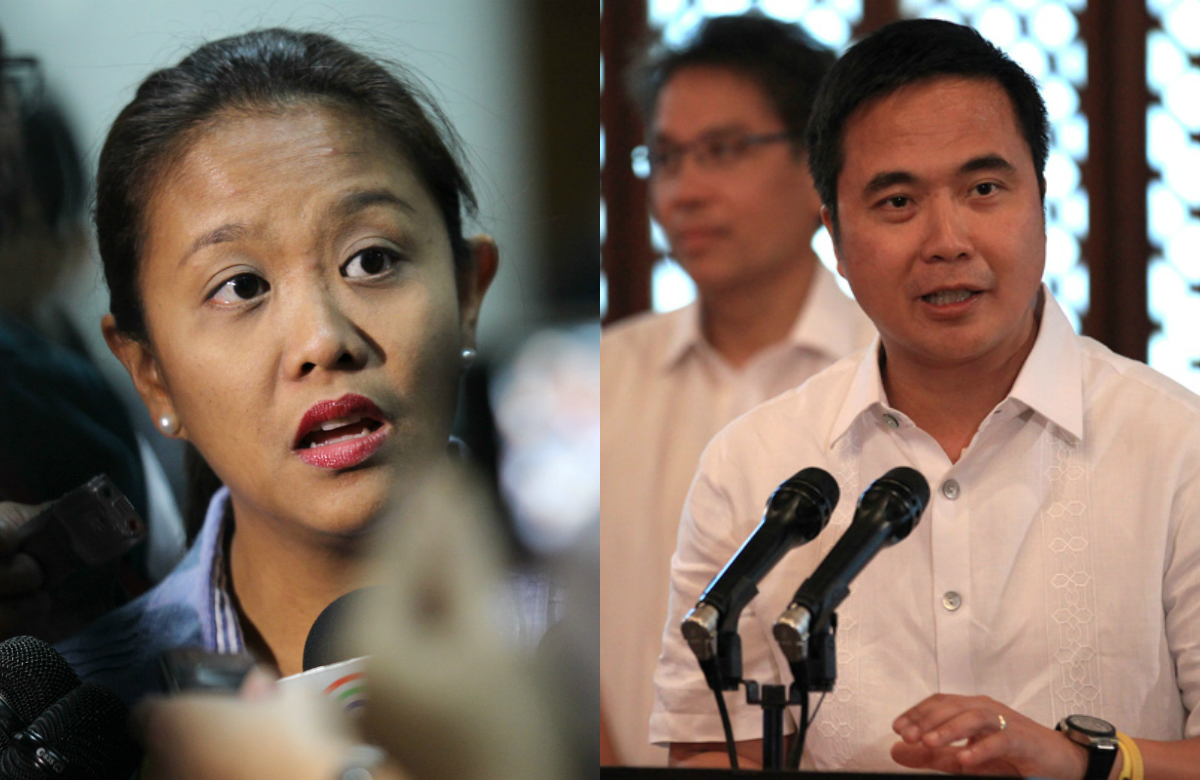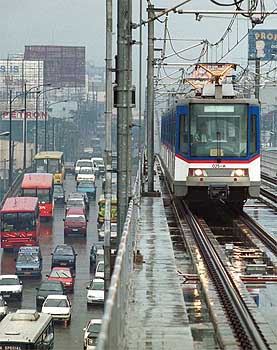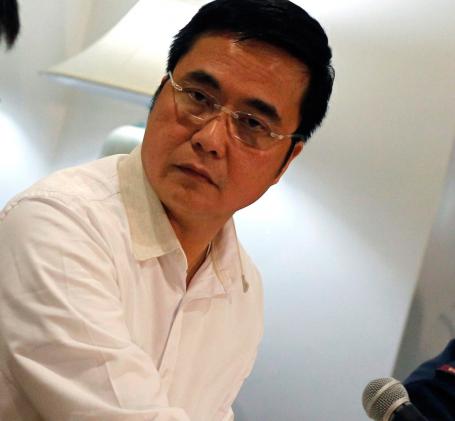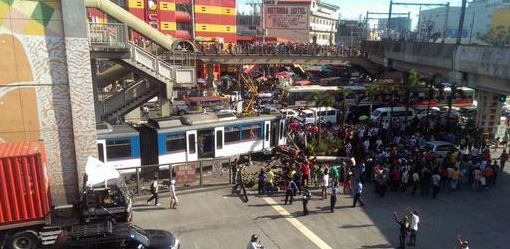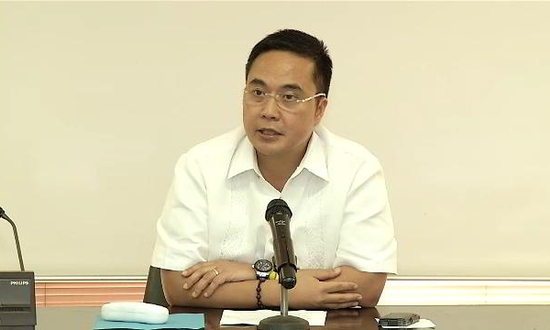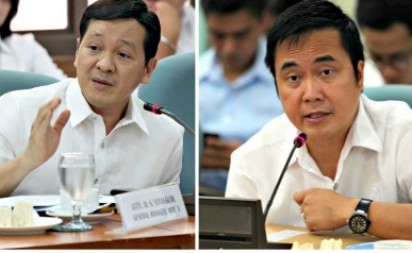By Christine O. Avendaño and Gil C. Cabacungan | Inquirer.net | November 27, 2015
Traffic, the Metro Rail Transit (MRT) and other transport woes took center stage when presidential contenders—Sen. Grace Poe and Liberal Party (LP) standard-bearer Mar Roxas—spoke on pressing issues in a forum on Wednesday night.
“People deserve better. It’s a matter of vision, planning, execution and leadership that could have spelled the difference,” Poe said of the frequent breakdowns of the rickety MRT trains that had regularly stranded city commuters or left them stewing in traffic for hours.
Speaking before graduates of three American business schools, Poe said Roxas could have done more when he was head of the Department of Transportation and Communications (DOTC).
In his remarks later in the forum, Roxas said he was “confident [he] did all [he] could” given the situation at hand during his stint as DOTC chief from June 2011 to September 2012.
The Wharton School of Economics graduate said the “original sin” behind the MRT problem was the build-lease-transfer contract between the Ramos administration and a private consortium led by Robert John Sobrepeña’s group, that Roxas described as “anomalous” because of its guaranteed 15-percent annual return and the provision that only the private builder and not the government could buy the trains.
“Imagine buying a contract just to take them out of a cushy position. Where in the world can you see a 15-percent guaranteed return, dollar-denominated, for 25 years, come hell or high water? That is what we are trying to get out of,” Roxas said, adding that he would seek the abrogation of the MRT contract should he win as President in 2016.
READ: Roxas to commuters caught in traffic: ‘I know the frustration’ / Binay camp blames Roxas for floods, traffic
20-20 hindsight
“It’s very easy [to have] 20-20 hindsight, you always have the perfect answer. But that is not how things are. You come across a problem [and] you solve it to the best that you can,” Roxas told Filipino graduates from the Harvard Club of the Philippines, the Kellog School of Management Alumnae Association of the Philippines and the Wharton-Penn Alumni Association at the event held at the Manila Polo Club in Makati City.
Poe hits Binay
Poe also took aim at another rival for Malacañang, Vice President Jejomar Binay, who was invited to the forum but had begged off, for saying that she should be disqualified from seeking the presidency because she was not a natural-born Filipino.
“That’s his opinion. It’s very convenient for him if I were disqualified,” Poe said, drawing laughter from the audience during the “Presidential Elections 2016: Meet Your Candidates” forum.
Binay had been trailing Poe in recent surveys on voters’ preference among presidential candidates.
In a nine-minute speech before the open forum, Poe said she was running for the country’s top post not only because she believed she had a chance of winning, but also because she could “shepherd the country” through its next economic journey, which she described as the “path of inclusive growth.”
Newcomer, outsider
The senator acknowledged that she was a “newcomer” in politics as well as an “outsider” in the government.
But she described these as advantages for her, as she carried no baggage from long years in politics and had no allies or subordinates that she had “to protect or pander to.”
“I can bypass traditional rituals and practices that bind experienced politicians… [and] can appoint the best people from outside the usual circles … without worrying [about stepping on some people’s toes],” Poe said.
If elected President, she said she would retain the “best performing” Cabinet secretaries who would be made accountable for their failings, and would be chosen “on merits alone,” and not because of friendship or gratitude for past favors.
President Aquino had often been criticized for turning a blind eye to the misdeeds of officials perceived to have been appointed for their personal ties to him, among them former Land Transportation Office head Virginia Torres and former Philippine National Police Director General Alan Purisima.
Council of economic advisers
In preparation for the presidency, Poe said she had formed a council of economic advisers to help her lure direct foreign investments to the Philippines and work on a program that would “reduce barriers to investments across a broad spectrum of industries.”
Among the members of that council are former Socioeconomic Planning Secretary Cielito Habito, academic Raul Fabella, lawyer Antonio La Viña and economist Romy Bernardo, she added.
While Poe acknowledged that President Aquino had “done quite a bit,” particularly in leading the country by example, she said that the Chief Executive had failed to achieve inclusive economic growth and should have supported the bid to pass the freedom of information bill, which would have facilitated transparency in government.
Cruel words
Should she be disqualified from the presidential race as a result of questions about her citizenship, Poe said she would “respect the rule of law,” but would “continue to fight the disqualification cases … as well as the rights of every Filipino.”
An abandoned child should not be abandoned by the government, she added, and should not have to endure injustice and “cruel words,” as she had gone through in recent months.
On the Philippines’ territorial dispute with China in the South China Sea, Poe said she would pursue the case in the United Nations Permanent Court of Arbitration, but would also engage other members of the Association of Southeast Asian Nations in applying the rule of law in the heavily disputed waterway.
The Philippines should maintain diplomatic relations with China as well as dialogue with other countries, Poe added.
Open to tax cuts
Aside from defending his stint at the DOTC, Roxas also focused on what he had achieved as head of the Department of the Interior and Local Government (DILG).
The LP candidate cited his “lambat-sibat” program that had updated police work to include the geotagging of criminal hotbeds, and the purchase of 30,000 radios to enable police to communicate better among themselves in pursuit of lawless elements.
Roxas mentioned as well the 1:1 policeman-pistol ratio, “so that for the first time… they don’t have just pito and batuta (whistle and night stick) when they run after criminals.”
He was open to tax cuts, Roxas said, but the issue should not be discussed during election periods.
“I believe that money earned by people should first go to their pockets… But I just don’t think that in a politicized environment, you can have rational debate,” he added.
Critics should not just focus on the high tax rate of 32 percent, the former senator said, but also on the poor tax collection, one of the lowest in the region. Only P1 out of every P7 of the gross domestic product is collected in taxes, he added.
“It’s a zero-sum game. What comes in as taxes is used to pay for infrastructure, education. It’s not a fairy tale where we can say we will not pay taxes, [but still expect] healthcare, education and infrastructure to continue,” Roxas said.
The presidential aspirant also explained the Aquino administration’s reluctance to join the Trans-Pacific Partnership (TPP) trading bloc and said that most members of the TPP subsidized their farmers.
Should the country join this bloc, Filipino farmers who account for one-third of the country’s population would be wiped out? he asked.
 Twitter
Twitter Facebook
Facebook